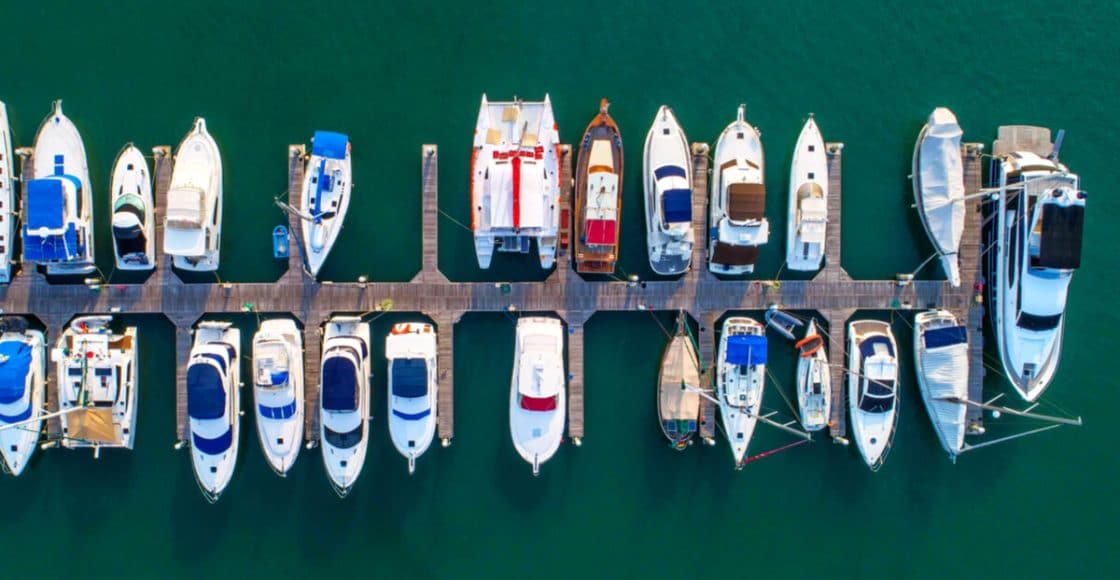

Yachts vs. Boats: What are the Differences?

Table of Contents
Last Updated on April 13, 2022 by Boatsetter Team
Many people use the words “boat” and “yacht” interchangeably, and some lean on the latter to make their ride sound more impressive. But what are the key differences between boats and yachts?
First, let’s look at some broad definitions of a boat, a yacht, and other related vessels.
- “Boat” can refer to just about any kind of vessel— towboat , fishing boat , center console , houseboat , and so on.
- “Dinghy” designates a small boat with a human or wind means of propulsion including a rowing dinghy or sailing dinghy. It also refers to a tender to a bigger boat or yacht.
- “Ship” is a large commercial boat, often used for distance travel and transport of goods or passengers – cruise ship, container ship, etc.
- “Yacht” is typically a larger boat with luxury amenities used as a recreational vessel— motor yacht , sailing yacht .
- “Superyacht” is a large yacht and is often also called a mega yacht . The delineation used to be at 80-feet but again, with today’s size creep, anything under 100 feet would just simply be called a yacht.
So, yacht or boat? Let’s dive deeper into the elements that differentiate a boat from a yacht.
Own a Boat or a Yacht? Learn How to Offset the Cost of Ownership by Listing on Boatsetter
Size of the Vessel
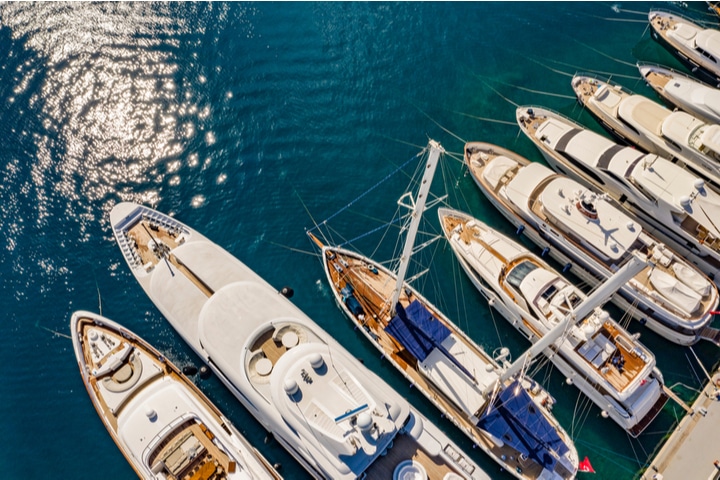
Some place a hard line at 35 feet. Below that, you have a boat and above, it’s a yacht. However, that’s an artificial differentiator.
Just 30 years ago, a 30-foot boat was considered large and could have been a yacht but as recreational boats grow longer, the term yacht has been pushed up the scale.
That said, a well-kept 40-foot boat designed for recreation can technically still be called a yacht (although larger vessels are likely to cost more, price isn’t a good indicator of yacht status primarily because it fluctuates with brand, age, and amenities).
Check out local yacht rentals near you to understand how size plays a difference.
What it’s Used For
A yacht is a vessel designed for recreational purposes. It generally operates on open waters (rather than small lakes or rivers) and has accommodations for overnight guests.
A cruise ship, on the other hand, accommodates a large number of passengers in a commercial setting whereas a yacht carries a smaller number (of paying or non-paying) passengers for private recreation.
Onboard Technology
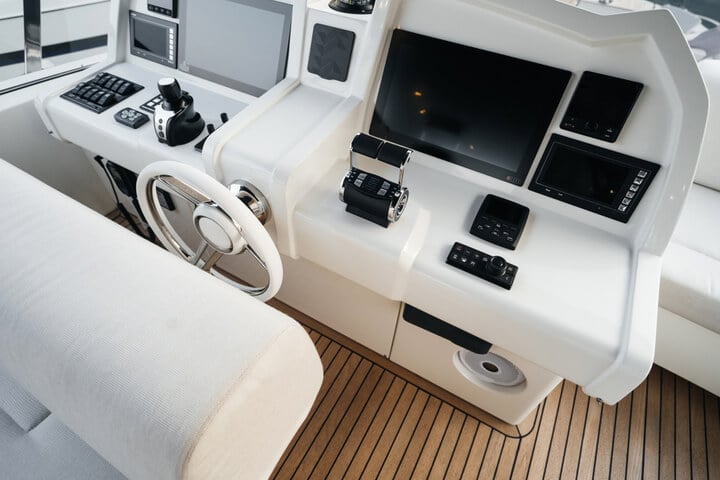
Advanced technology for navigation, communications, and system operation as well as redundant systems for safety can be found on a yacht that is likely to venture farther.
Again, there are caveats because today’s towboats that are fun day boats also feature technology such as GPS and digital switching that integrates many electrical and electronic features.
Propulsion Types
This is a tricky one. “Yacht” comes from the Dutch word “jaght” which referred to a sailing vessel that was used by the navy to capture pirate ships and later for recreation by the affluent.
Today, a yacht can be a large sailing vessel or a motor yacht. All larger yachts will have a motor for propulsion whether they have sails or not. Sailboats by design have smaller motors so trying to put a horsepower minimum on yacht propulsion is simply inaccurate.
Some define a yacht as having multiple crews to operate the vessel and tend to passengers or guests. The larger the yacht, the more crew will be required to navigate, maintain and service the vessel. That said, a couple who owns a 50-footer can call their boat a yacht although it’s owner-operated.
Luxury and Amenities
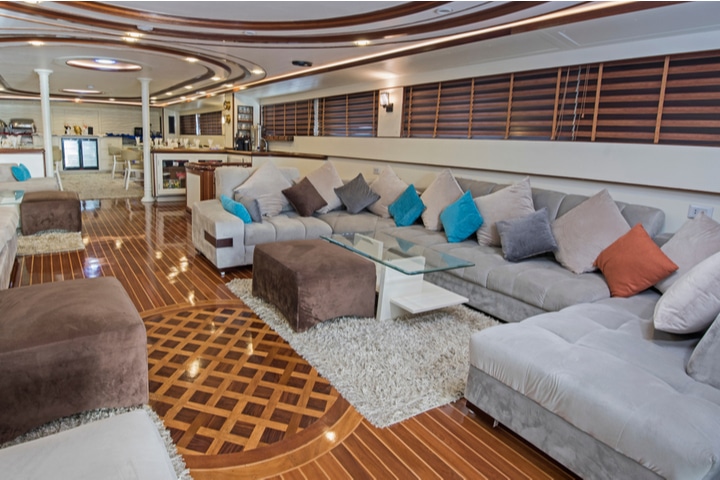
This is perhaps the best measure of a yacht. If the vessel offers accommodations, a galley , a head , and is luxurious in its presentation, it’s most likely a yacht.
That said, there are lots of center console fishing boats and towboats that are pretty nicely equipped these days and they wouldn’t be called a yacht.
All yachts are boats, but not all boats are yachts—and the lines are blurry. The word yacht elicits images of posh seafaring experiences while a boat evokes ideas of fun and perhaps work. Do some research to learn what size and type of boat or yacht is best for you .
To a degree, the point at which a boat becomes a yacht is in the ear of the beholder but if you focus on size, amenities, and the type of use, you’ll be able to discern the difference. Then all that remains is to find a way to spend time and have fun on any kind of vessel.
Browse All Available Boat & Yacht Rentals Across the Globe

Zuzana Prochazka is an award-winning freelance journalist and photographer with regular contributions to more than a dozen sailing and powerboating magazines and online publications including Southern Boating, SEA, Latitudes & Attitudes and SAIL. She is SAIL magazines Charter Editor and the Executive Director of Boating Writers International. Zuzana serves as judge for SAIL’s Best Boats awards and for Europe’s Best of Boats in Berlin.
A USCG 100 Ton Master, Zuzana founded and manages a flotilla charter organization called Zescapes that takes guests adventure sailing at destinations worldwide.
Zuzana has lived in Europe, Africa and the United States and has traveled extensively in South America, the islands of the South Pacific and Mexico.
Browse by experience

Explore articles

Tampa Bay, St. Petersburg, & Clearwater Fishing Reports (May 2024)

7 Best Boating Safety Tips for Summer Fun

7 Mindful Practices that Make Good Marina Etiquette

Our Favorite Boating Accessory: Inflatable Paddle Boards
Live Yachting

Understanding the Difference Between a Yacht and a Boat
Curious about the difference between a yacht and a boat? You’re definitely in good company! Many people ponder this question as they dream of setting sail.
This article explores what defines a yacht versus a boat, diving into their unique characteristics and various types.
Key differences in size, design, and purpose will be highlighted, helping you decide which watercraft might be the perfect fit for your next adventure.
Whether you’re a seasoned sailor or just curious, you’ll discover something amazing here!
Key Takeaways:

- A yacht is a large, luxurious watercraft for leisure.
- A boat is a smaller vessel for various activities.
- Differences include size, purpose, design, crew, and cost.
What Is a Yacht?
A yacht is a stylish boat designed for luxury and recreational purposes. It is primarily used for cruising and sailing across various bodies of water, including the tranquil Mediterranean and expansive oceans.
These elegant vessels often come with modern engines, spacious living areas, and high-quality amenities that enhance comfort and entertainment for both owners and guests.
The design of a yacht prioritizes safety and craftsmanship, making it a preferred option for enjoyable excursions, whether for fishing or leisure activities.
With various sizes and features available, yachts accommodate a diverse range of needs and preferences.
What Are the Characteristics of a Yacht?
Yachts have a luxurious design, substantial size, and numerous amenities that ensure comfort and safety for all passengers.
These remarkable vessels often exhibit exceptional craftsmanship, with interiors meticulously designed to harmonize elegance with functionality. Accommodations generally consist of spacious cabins featuring plush furnishings, modern entertainment systems, and gourmet kitchens that provide a lavish experience.
Safety standards are crucial in yacht construction. Yachts commonly incorporate advanced navigation systems, stability enhancements, and lifeboat provisions to ensure peace of mind during voyages. Design elements often include expansive decks suitable for relaxation and social gatherings, while sleek hull lines enhance both aesthetic appeal and performance on the water.
What Are the Different Types of Yachts?
There are various categories of yachts, including super yachts and mega yachts, each classified based on size, amenities, and intended use, such as recreational sailing or fishing.
Sailing yachts rely on wind power, appealing to individuals who appreciate the traditional sailing experience. In contrast, motor yachts offer speed and luxury, making them ideal for comfortable cruising.
Fishing yachts are specifically designed for anglers, typically equipped with specialized gear to enhance the fishing experience. Catamarans, which are boats with two hulls, provide stability and ample space, making them favored for leisure and social gatherings.
Understanding these distinct categories enables prospective yacht owners to select the option that best aligns with their lifestyle and recreational preferences.
What Is a Boat?

A boat is a versatile watercraft engineered for various purposes, including recreational activities, fishing, and transportation across oceans and other bodies of water.
Boats come in numerous sizes and types, each equipped with distinct propulsion systems tailored to their intended applications. Safety remains a paramount concern in boat design, ensuring that passengers experience a secure and reliable journey on the water.
Whether for leisure or commercial purposes, boats offer essential functionality and enjoyment for countless enthusiasts.
Understanding the differences between yachts and boats can help you make informed decisions as you consider your own boating adventures.
What Are the Characteristics of a Boat?
The characteristics of a boat encompass its size , how it moves , and safety equipment . These elements significantly contribute to its functionality and performance.
The size of a boat is critical in determining its intended use. It ranges from small kayaks , which are perfect for calm lakes, to expansive yachts designed for ocean voyages.
Boats can move in various ways. Some use traditional sails that catch the wind, while others rely on modern engines for speed and reliability.
Safety measures are vital. Features like life jackets , flares , and emergency beacons help keep everyone on board ready for emergencies.
These elements not only enhance the joy of boating but also ensure a secure and enjoyable experience for all passengers.
What Are the Different Types of Boats?
Boats come in many types and categories, each designed for specific activities like fishing, recreational sailing, or commercial use .
Some vessels are made for leisurely outings . They feature spacious decks and comfy seating, ideal for families or friends enjoying a day on the water.
Others are crafted specifically for fishing enthusiasts . They come equipped with specialized gear and storage for catches.
The market also includes motorboats , sailboats , and luxury yachts . Each fulfills diverse needs, whether for thrilling water sports or peaceful sunset cruises.
By understanding the unique characteristics of each type, individuals can make informed choices to enhance their boating adventures, whether for relaxation or adventure .
What Are the Main Differences Between a Yacht and a Boat?
The main differences between a yacht and a boat include their size, purpose , design , features , cost , and maintenance requirements .
These factors significantly affect the overall experience on the water.
1. Size and Purpose

One major difference between yachts and boats lies in their size and intended purpose. Yachts are usually designed for luxury and recreation , while boats serve recreational and commercial functions.
This difference influences their construction and outfitting . It also impacts the experiences offered to those on board.
For leisure seekers, yachts provide elegance and comfort . They are often equipped with amenities that create a lavish floating retreat.
In contrast, boats are designed for various tasks like fishing or transporting goods . They prioritize functionality and efficiency , serving a broader range of commercial activities.
This difference in size and purpose shapes how individuals engage with their surroundings on the water, enhancing both recreational and commercial adventures.
2. Design and Features
The design and features of yachts often exemplify luxury and comfort . They integrate high-end amenities typically absent in standard boats.
These sophisticated vessels often have spacious interiors with gourmet kitchens, opulent lounges, and entertainment areas designed for hosting guests with style.
The craftsmanship in yacht building is exceptional, reflecting the artistry of skilled builders who prioritize form and function .
Advanced navigation systems, state-of-the-art technology, and eco-friendly solutions further enhance the yachting experience, making each journey enjoyable and sustainable.
Many models include luxurious amenities like jacuzzis , swimming platforms , and even helipads . They solidify their reputation as floating palaces that redefine maritime adventure!
3. Crew and Passengers
Yachts come with a dedicated crew to ensure privacy and meet passengers’ needs. Smaller boats usually lack this feature.
With trained staff, you enjoy personalized service . This includes gourmet meals and organized excursions to nearby islands. Smaller boats require passengers to handle tasks, creating a more casual atmosphere .
While small boats foster unique bonding experiences , yachts provide luxurious service. This distinction greatly enhances your onboard experience.
4. Cost and Maintenance
Cost and maintenance are key factors that set yachts apart from boats. Yachts generally incur higher costs due to their intricate designs and luxurious features.
When considering ownership, think about the initial purchase price and ongoing maintenance costs . Yachts have significant expenses like crew salaries and advanced systems, which can lead to annual costs exceeding six figures .
Boats have lower insurance premiums and easier maintenance, making them more appealing for casual users. It’s crucial to assess these financial aspects as they affect your long-term satisfaction .
Which Is Better: Yacht or Boat?

Choosing between a yacht and a boat depends on your individual needs. Factors include size , type , intended use (like fishing or sailing ), and the experiences desired .
Factors to Consider When Choosing Between a Yacht and a Boat
Consider these key factors when deciding:
- Primary purpose: Pleasure cruising or commercial activities?
- Desired comfort level: How luxurious do you want your experience?
- Overall costs: What can you afford?
Your choice depends on how you envision your time on the water. If you want to host social gatherings or enjoy extended voyages , a yacht’s space and amenities may be best. For casual outings like fishing , a smaller boat could suffice.
Comfort is another critical factor. Yachts often have features like cabins and kitchens for enjoyment. However, this luxury comes at a higher price , which is essential to consider.
Also, consider maintenance costs , fuel efficiency, and insurance , especially with yachts and their powerful systems.
How to Choose the Right Watercraft for You?
Selecting the right watercraft means understanding your needs. Consider whether you want it for fishing , cruising , or luxury experiences . Don’t forget to factor in your budget .
1. Determine Your Needs and Purpose
First, think about what you need your watercraft for. Is it for recreational sailing, fishing excursions, or luxurious living experiences on a yacht?
Your intended use will greatly influence your choice. Different boats fulfill different roles.
- A small, agile sailboat is perfect for weekend adventures.
- Larger vessels, like mega yachts, are best for hosting stylish gatherings.
Considerations include:
If fishing is your main goal, choose equipment designed for angling. Specialized fishing vessels can enhance your experience on the water.
2. Consider Your Budget
Thinking about your budget is crucial. It should cover not just the initial purchase price of the yacht or boat but also ongoing costs.
These costs include:
- Maintenance
- Docking fees
By understanding all expenses, you can make informed decisions about upgrades and lifestyle choices, ensuring a more enjoyable boating experience.
3. Research and Compare Different Options
Researching and comparing various yachts and boats is essential. Each option has distinct features and specifications.
This process helps potential owners uncover critical information:
- Engine performance
- Propulsion capabilities
- Onboard amenities like kitchens and salons
Knowing what you prioritize—like spacious deck layouts or advanced navigation systems—will enhance your overall boating experience.
4. Seek Professional Advice
Getting professional advice can provide valuable insights and expertise. This helps you make a more informed decision between a yacht and a boat.
Consultants can assess your needs, preferences, and budget, leading you to a tailored selection process.
They understand the intricacies of various models, including:
- Hull designs
These experts can also identify potential long-term costs like maintenance and insurance. Their knowledge helps you navigate the complex landscape of options, ensuring satisfaction in your choice and minimizing buyer’s remorse.
Similar Posts

Exploring the Gap Between Size and Luxury
Yachts and mega yachts represent the height of luxury on the water, catering to various tastes and needs with unique designs that appeal to diverse owner preferences. This article explores the key distinctions between yachts and mega yachts, from their sizes and amenities to costs and uses, including financial aspects related to crew and maintenance….

Here Are The Differences…
Curious about the difference between yachts and sailboats? Let’s dive into their unique features and find out which one suits your adventurous spirit. This article explores what defines each vessel, including their types, propulsion, size, and design. It also compares their advantages for cruising and racing, helping you decide which might be the best fit…

Which Ownership Is Right For You?
Owning a yacht is more than just a dream; it’s a significant commitment that combines luxury, adventure, and responsibility along with a unique yachting lifestyle. If you’re considering this lifestyle, it’s crucial to understand the financial aspects, from the initial purchase price to ongoing operating costs and maintenance responsibilities associated with yacht ownership. However, there…

Luxury by the Sea: Club or Boardwalk?
When it comes to enjoying a day by the water at Walt Disney World, two popular options often come to mind: yacht clubs and boardwalks. Each offers its unique appeal, catering to different tastes and preferences. This article explores what defines a yacht club, highlighting the luxurious amenities it offers, while uncovering the vibrant attractions…

Comparing The Yacht Vs Houseboat
Choosing between a yacht and a houseboat is more than just a lifestyle decision; it’s about understanding the unique experiences each offers. While both provide a chance to enjoy life on the water, they cater to different needs and preferences. This article shows the key differences and similarities between these two floating homes: Costs, including…

Choosing the Perfect Nautical Adventure
Are you ready to set sail on an unforgettable adventure? The Yacht Week and Sail Week are two exciting nautical events that blend thrilling sailing experiences with vibrant parties and new friendships. While both events share common elements, they each offer unique features that cater to different preferences. Get ready to discover what makes Yacht…
Leave a Reply Cancel reply
Your email address will not be published. Required fields are marked *
Save my name, email, and website in this browser for the next time I comment.
Click on the button to load the content from www.googletagmanager.com.
Load content

- Tailored Vacation Planner
- Cabin Yacht Charter
- Family Sailing Holidays
- Romantic Sailing Vacations For Couples
- Sailing with friends
- Greece all inclusive yacht charter
- Croatia all inclusive yacht charter
- Food & Wine Routes
- Yacht search
- Luxury sailing
Boat vs. Ship vs Yacht: What’s the Difference?

Language is a tricky thing, and picking out the differences between similar terms can be confusing. This is especially true when some of the definitions overlap. This is the case with the case of boat vs. ship vs. yacht . What’s the difference? We know in our gut that there are differences between these three seafaring vessels, but unless you’re a harbor master do you really know what counts as what?
Let’s get into some definitions, and we’re going to start with the easiest to explain: What is a yacht? What is a ship? And what is a boat?
Yacht vs. Ship vs. Boat
What is a yacht.
A yacht, I think everyone would agree, is fancier than a ship or a boat. “Yacht” infers some amount of luxury , and definitely recreation. There’s also something to be said about size. A yacht tends to be anywhere between 35 feet up to 160 feet. And some yachts, known as superyachts, go even beyond that. (Jeff Bezos just built a 417 foot yacht, but that’s really breaking yacht records.)
Because of the size, yachts tend to operate in larger bodies of water–generally the ocean. Yachts are able to handle rougher ocean waves, and they are also equipped with more advanced navigation and guidance instruments than smaller boats. Likewise, a yacht tends to have a full crew to help with the navigation, engineering, repairs, as well as having stewards that serve the yacht’s guests. This can be anywhere from a crew of four or five up to a crew of a few dozen on large yachts.
One interesting thing to note is that outside of the United States, a yacht refers to a sailboat , and a motorized yacht is called a “motor yacht”.
So, is a yacht a boat? Yes, technically a yacht is a boat. But a yacht is a very specific kind of boat.
Want to hop aboard?
Book your dream sailing vacation in top sailing destinations!
- Explore your charter options
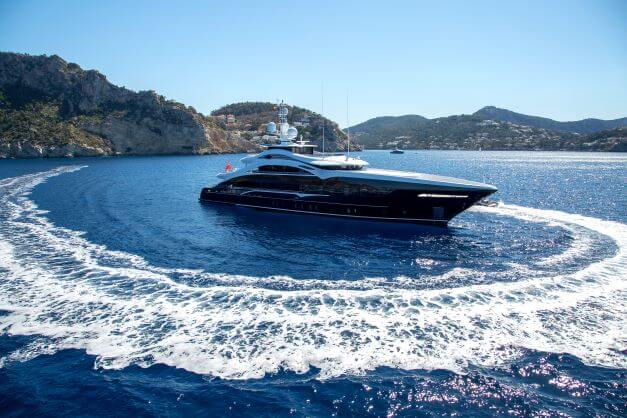
What is a Ship?
The term ship is most commonly associated with a very large boat, and something that is not as fancy as a yacht (one exception is that cruise ships can still be very fancy, but are referred to as ships because of their size and power.)
Ships are generally so large that they would never be found in a lake, with some exceptions for the Great Lakes, and are made for navigating the high seas of the open ocean. An ship can refer to a cruise ship, a naval ship, a tanker, a container ship, and many other commercial vessels.
Ships tend to have advanced navigation and technology, but much more advanced than that of a yacht due to the size, the speed, and the routes that a ship will take. They are meant to be traversing the open ocean for very long periods of time, from one continent to the next, while a yacht may only rarely set across the ocean and most often stays somewhat near land.
A ship will also have a much larger crew than a yacht or a boat. Ships are typically so large that they need not only one trained navigator but a set of navigators, plus an entire engineering team, and includes many more positions.
Finally, a ship is meant to carry things. This may be passengers, yes (in reference to cruise ships and some navy ships) but most ships are for carrying cargo–or even carrying equipment to do work on other ships including repair work or refueling.
What is a Boat?
Well, a boat is harder to define, because a yacht is technically a boat, and a ship is technically a boat. But when people refer to boats, they are almost always referring to something smaller than either a yacht or a ship. Boats may be motorized, like a speed boat, or they may sail, or they may be man-powered, like a rowboat or a kayak. Really, anything up to and including a liferaft, can be called a boat.
(As a side note that will just muddy the waters even further, submarine captains are adamant that their subs are boats. They are not ships.)
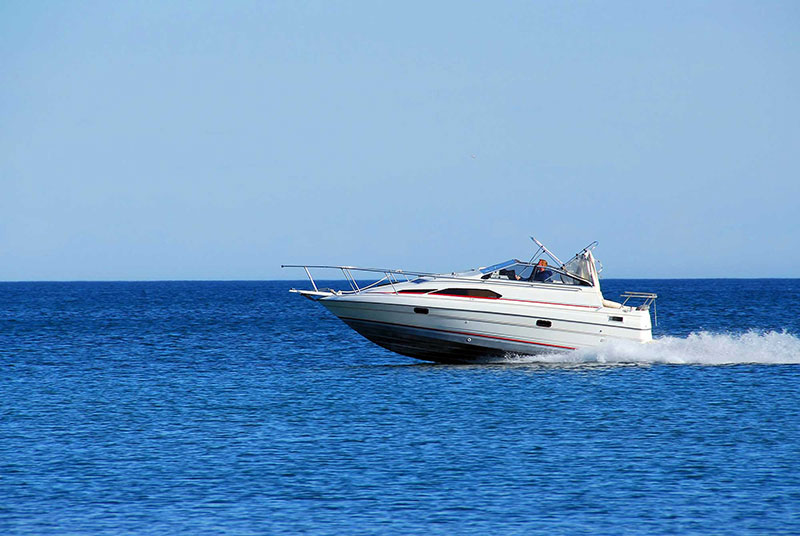
So, Boat vs. Ship Vs. Yacht?
Ultimately it comes down to this: all three of them are boats, but yachts are fancier, larger, and used for recreation, and ships are even larger, used commercially or by the navy, and are meant to cross oceans. The dividing line is sometimes thin, but generally speaking, when it comes to boats vs. ships.vs. yachts you can go by the adage “ I know it when I see it .”
Share article:
Have a question.
We have answers to your questions. So don’t hesitate to get in touch with our team today!
- GET MORE INFO
Feel free to ask us anything. All hands on deck. Let's sail
Thank you for sending us an inquiry, thank you so much for your enquiry.
What is the Difference Between a Boat and a Yacht?
Key differences between ‘boats’ and ‘yachts’.
Boats and yachts are two different types of watercraft normally used for a range of recreational and commercial activities. Whilst people tend to use these terms interchangeably, there are numerous distinct differences between a boat and a yacht. There are six main differences that you should bare in mind when looking at boats or yachts , to help you gain the best understanding.

6 Differences Between Yachts and Boats
The first key difference between a boat and a yacht is their size. A yacht is typically bigger than a boat and whilst there is no strict definition of what a yacht is, the general consensus is that if it is over 40 feet in length, it is usually considered a yacht. Boats can also vary in size, starting from small dinghies to larger motorboats or ferries but as a whole are definitely smaller than yachts.
Typically, boats are used for more recreational activities including fishing, cruising and watersports. As well as this, they can be used for commercial use and transportation with cargo or ferries. This is why boats that aren’t ferries or cargo tend to have a smaller, more simplistic design. Each boat is designed specifically so they function for their activities. On the other hand, yachts are usually used for cruising, entertainment and pleasure. They are designed with a more aesthetic design in order to enhance the experience of passengers.
3. Luxury Features
Another factor that easily sets boats and yachts apart are their luxury facilities. In general, boats do not have luxury facilities and whilst they might have an underdeck area, this will only be small and not include any kind of ‘luxuries’. Yachts however are usually equipped with multiple luxury features including spacious cabins, full kitchens, multiple bathrooms, swimming pools, hot tubs, television systems and in some cases, even helipads. These are purposefully designed to heighten the onboard experience of passengers.
One thing you should expect to see when comparing yachts and boats is a difference in cost. Because boats are fit for a smaller, more simplistic purpose you should expect these to cost less than a yacht. You could, on average, buy a boat ranging from a few thousand pounds right up to £700,000 but a yacht would come at prices from about £100,000 to £10,000,000 . This is for many reasons including the size, purpose and functionality of a yacht compared to a boat.
5. Maintenance
Whilst it is important to consider the costs of buying a boat or a yacht , it is also important to consider the upkeep that is going to come with that. In general, a yacht requires more maintenance than boats due to them being larger and having more complex systems. They would require specialised cleaning, regular upkeep of their facilities including swimming pools, hot tubs, rooms etc and regular servicing of their mechanical systems. Boats would still need to undergo upkeep, but not to the extent that a yacht would. As a result, the price and work level are usually lower for boat maintenance .
6. Engine Power
The last difference to note between boats and yachts is the power of their engines. There are a lot of boats that won’t even have an engine, it could range from a small boat requiring manpower to operate to larger boats using wind and sails to move. Boats that do have an engine can reach quite high speeds and run for some periods of time, but their engine capacity is not comparable to a yacht. A yacht engine tends to be more powerful overall, which allows them to travel through rougher water and travel for very long periods of time.
Should I Buy Myself a Boat or a Yacht?
It is important to do your research about the boat or yacht you are looking to buy in order to make sure you are getting the watercraft fit for your purpose. If you are looking to partake in watersports or short trips, a boat is definitely more suitable for you. However, if you are looking for a more luxurious travel style then a yacht may be the one for you.
If you are looking to sell or buy, Clipper Marine might be the perfect option for you. We have experience selling a range of yachts and boats and can offer our expertise when setting the asking price, marketing the boat to potential buyers.
Clipper Marine Mailing List
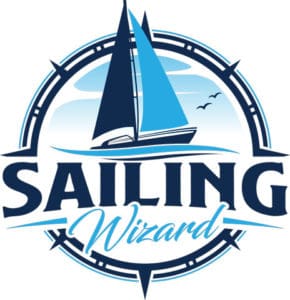
What’s the Difference Between a Boat, Yacht & Ship?
Whether you are a brand new sailor or just wanting to brush up on some terms, it is essential to know what to call a particular watercraft if you’re going to fit in while you’re at the docks or out on the water. There are many nuances and subtle differences between water vessel types, but below are some of the main differences.
In general, yachts are either sailing or motor vessels used for pleasure. Yachts are often luxurious and equipped with an overnight cabin. Boats can be either propelled sail or a motor and come in varying sizes. On the other hand, ships are usually motor-powered and much larger than boats.
Some of the differences between watercraft types can be a little fuzzy, but once you grasp the main differences between them, it becomes relatively easy to tell them apart. If you have no previous knowledge of watercraft, you are likely very confused about what defines a yacht, boat, and ship, so I’ll try to clarify any confusion you might have in the next few sections.
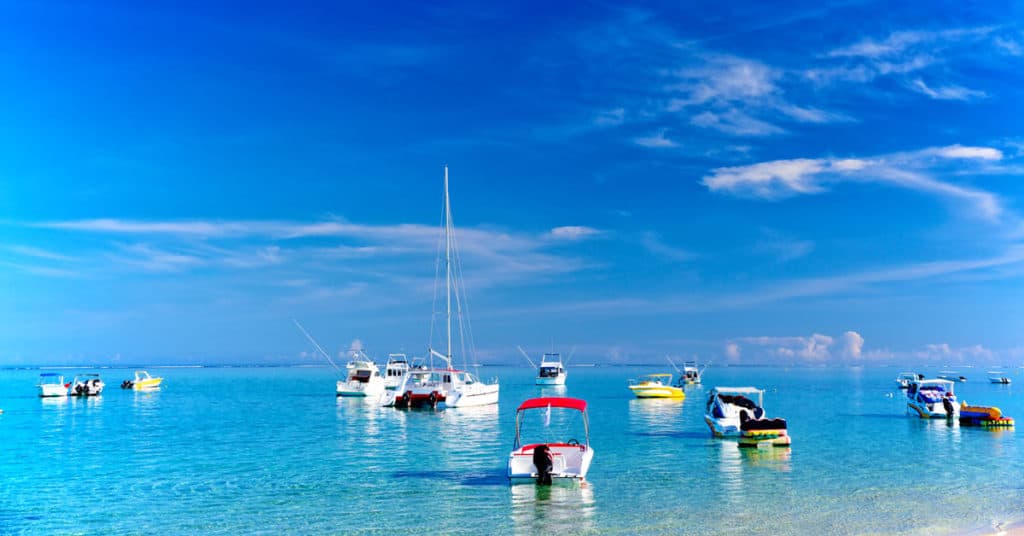
Similarities and Differences Between Boats, Yachts, and Ships
The many bodies of water all over the world are home to an extensive collection of different watercraft. There are so many shapes and sizes that they come in that it is nearly impossible to fit every single one into a specific classification.
However, in the following table, I did my best to loosely define ships, yachts, and boats so that it is easy to see the differences between the types of watercraft.
| Less than 197ft (60m) (usually ~25ft) | $15000 – $100,000+ | Pleasure, Residential, or Commercial | Motor, Wind, or Man Powered | |
| Greater than 33ft | $250,000 – $50,000,000+ | Pleasure | Motor or Wind Powered | |
| Greater than 197ft | $10,000,000 – $500,000,000+ | Pleasure, Residential, or Commercial | Motor Powered (Ancient Ships Used Wind or Man Power) |
As I mentioned earlier, it is impossible to fit EVERY SINGLE water vessel into a particular category, so there are tons of exceptions out there. In addition to the exceptions, different organizations, laws, and people classify types of boats slightly differently.
There is no universally accepted definition for ships, boats, and yachts, but instead many different sets of rules and regulations. In this article, I have tried my best to use the most commonly accepted definitions for each watercraft type.
Now that we’ve gone over some of the main differences and similarities between boats, ships, and yachts, let’s take a look at each type of vessel individually and look at their most prominent characteristics and attributes.
What Exactly is a Boat?
Boats come in a vast array of sizes and shapes. To many people, the term “boat” simply refers to nearly any watercraft, but there are actually a few restrictions and defining characteristics that all boats have. So let’s just get right into it and take a quick look at what exactly qualifies a vessel as a boat.
Overall Size of Boats
As I said before, there is a massive catalog of different types of boats, and they come in a variety of sizes. There are huge boats that hold lots of cargo or people, and then there are smaller ones that barely can stay afloat with a single person on board.
Typically, boats are defined as watercraft that are less than 197 feet long. However, most boats you are likely to encounter on the water are usually around 30 feet long.
General Price Range of Boats
Again, it is hard to accurately give a price range for all boats because they come in so many different sizes, styles, and types, but most modern boats seem to fall in the $1,500 to $100,000 range.
Small Jon boats can cost even less than $1,500, while large sailboats and houseboats can cost well above $100,000.
Most Common Uses of Boats
Boats are used all over the world for a variety of different reasons and to do many tasks. Many types of boats serve a wide range of uses, but most are primarily used as a residence, for pleasure, or commercially.
Some of the most popular types of boats, such as sailboats, bowriders, and dinghies, are commonly used for enjoyment, fishing, racing, or other pleasurable activities. There are also many types of houseboats used as residences and commercial boats used for chartering or moving goods or people.
Propulsion Method of Boats
Due to the wide variety of boats, you are likely to find boats propelled by almost every propulsion method imaginable. Some of the more popular propulsion methods for boats to use are man-power, wind power, and motor power.
Boats on the smaller end often use the power of the people on board to row or paddle, while larger boats rely on sails or powerful motors attached to the stern. Many boats use more than one propulsion method, either together or with one of them as a backup.
What Exactly is a Yacht?
Yachts have many of the same attributes as boats, but their quality, size, and luxury really set them apart. When someone says “yacht,” many people imagine watercraft that are SUPER LARGE, and while there are lots of massive yachts, many smaller boats also qualify as yachts, which might surprise you.
Overall Size of Yachts
There are many different sized yachts, and the rules regarding how big they have to be are not very strict. In general, luxury watercraft greater than 33 feet in length are considered yachts. However, boats smaller than 33 feet are sometimes called yachts if they are exceptionally luxurious and elegant.
There is no upper limit to how large a yacht can be. Yachts longer than 100 feet are often referred to as mega yachts, and ones over 150 feet long called are super yachts.
General Price Range of Yachts
Because the very definition of a yacht requires it to be very luxurious, they often come with quite a price tag as a result. There is quite a range of different price points for yachts, ranging from $250,000 to $50,000,000 and beyond.
Most Common Uses of Yachts
Yachts, because they are so expensive to maintain and purchase, are primarily used for pleasure purposes. Day trips out on the water are typical for yachts, although they often have overnight cabins, so longer excursions are popular.
Chartered yachts are also very popular, which bridges the gap between commercial and pleasure. Although, when you are on a chartered yacht, it is usually for the sole purpose of having a great time and enjoying yourself.
Propulsion Method of Yachts
Because yachts are considered very luxurious and often so large, they are usually solely propelling using motor power. Even if a yacht is on the smaller end of the spectrum, they often only use a motor as a means of driving the craft through the water.
However, many large sailing yachts out there use sails and the wind to propel the vessel. So while the large majority of yachts use motors, keep in mind that some large and luxurious sailboats can be considered yachts.
What Exactly is a Ship?
Throughout history, large ships have been a helpful tool for many civilizations and have allowed them to transport goods and explore places beyond their homes. In modern times, ships are quite common and are used for a variety of different reasons.
Overall Size of Ships
One of the primary characteristics of ships that set them apart from boats is their size. Ships, especially in modern times, are often MASSIVE and are restricted to navigating only extensive waterways.
Vessels greater than or equal to 197 feet long are often considered ships. However, most ships today are huge and often fall in the 1,000-foot range or larger.
General Price Range of Ships
Most individuals will never own a ship due to their extreme maintenance and the cost of purchasing one. While many smaller ships are far less expensive, most modern ships cost anywhere between $50 and $500 million.
Large and luxurious cruise ships can even cost upwards of $1 billion to construct, and that’s not even taking into account staff, maintenance, and other costs.
Most Common Uses of Ships
Ships perform many different duties throughout the world, but usually, they are used to transport passengers or goods over long distances. In addition, they are also often used by military, scientists, fishers, and a plethora of other professions and people. They are also often used for pleasure purposes, in the form of passenger cruise ships.
Overall, ships encompass a large selection of vessels that perform many different duties.
Propulsion Method of Ships
Due to their large size, most modern ships are propelled using motors. However, even though ships are equipped with massive motors, they are still pretty slow and often move at around 20 knots per hour, although some move much quicker.
While most, if not all, ships today use motors to propel themselves through the water, this was not always the case. Before motors were around, many civilizations used ships for military, exploration, transportation, shipping, and many other uses. During these times, ships were powered primarily by man and wind power. Even today, you can occasionally find a sail-powered ship, though they are quite rare.
James Gerard
Hi, I'm James! I started sailing at a very early age here in the UK, and have enjoyed so many opportunities to sail all over the world. I created this website to share the many sailing tips I've leaned over the years, so that you can also discover the joy of sailing with safety and confidence.
Recent Posts
How to Predict Wind Direction & Speed from a Surface Pressure Chart
Learning how to read a surface pressure chart will allow you to predict the wind speed and direction based on the weather chart. This will help you in planning your next sailing trip.
What Does a Black & Yellow Buoy Mean? (Cardinal Marks Explained)
If you see a black and yellow buoy while you're sailing, don't ignore it. Cardinal Marks are there to help you avoid hidden hazards in the water. This helpful article will help you to identify a...
- Pontoon Boats
- Personal Watercraft
- nauticalknowhow
- Nautical Knots
- Tools and Calculators
Yacht vs Boat: What’s the Difference?
You may be surprised to learn that the difference between a yacht and a typical boat is not as easy to figure out as you’d think. This is thanks to the fact that there’s no specific definition for what a yacht actually is. In general, and as most people commonly use and understand these words, a yacht is a fast, often luxurious vessel used for recreational purposes. A boat, on the other hand, is typically a smaller vessel and it can have many purposes from recreation to fishing to rescue and more.
Let’s get into some of the specific differences between yachts and boats to get a better idea of what each of these admittedly general terms is trying to refer to.
What is a Yacht?
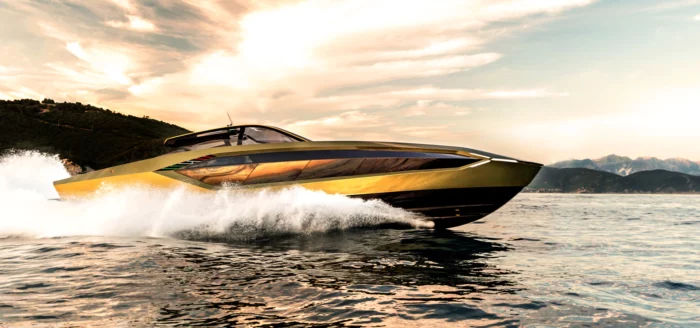
Yacht comes from a Dutch word jaghte , itself from the word jaghtschip which means “fast pirate ship.” That gives you an idea of where people’s heads were at when yachts first came on the scene. These days, the pirate part isn’t really involved but you do tend to expect a yacht to have some speed. Not that these are necessarily speed boats all the time, but there are racing yachts out there that people use exclusively for that purpose.
Because there is no specific definition for the word yacht in modern usage, you have to play it by ear a little bit. It’s one of those words that we all know what it means, even if we don’t have a proper, set in stone definition.
In general, and for most people, a yacht is a large recreational boat, capable of reaching high speeds and noted for its luxury and features. So what does any of that mean?
In terms of size, most people but not all would consider a yacht to be a boat that has reached at least 78 feet. Some people would acknowledge smaller vessels, as low as even 33 feet, as yachts, but this can be hotly debated even among yacht makers and yacht charter companies.
What is a Boat?

One of the oldest words in any language, boat can be traced back through Middle English to Olde English to proto-Germanic to the proto-IndoEuropean word “bheid” where it may have originally meant “to split” or something along those lines. That would have referred to simply splitting or hollowing wood to make a boat. So, by that definition, a boat is incredibly loosely defined.
In modern understanding a yacht is a boat but not all boats are yachts. Consider boat more of an overarching term like automobile while yacht is like an SUV. There are lots of other automobiles and SUV is just one kind.
Usually when people talk about boats today they mean smaller vessels. At some point, large boats become ships, and potentially even a yacht. Smaller boats could be anything from a fishing boat to a jon boat to a sailboat , a bass boat , catamaran , pontoon boat and more. Those boats often have very different forms and functions which allow for a heck of a lot of variety and usage.
Yacht Size vs Boat Size
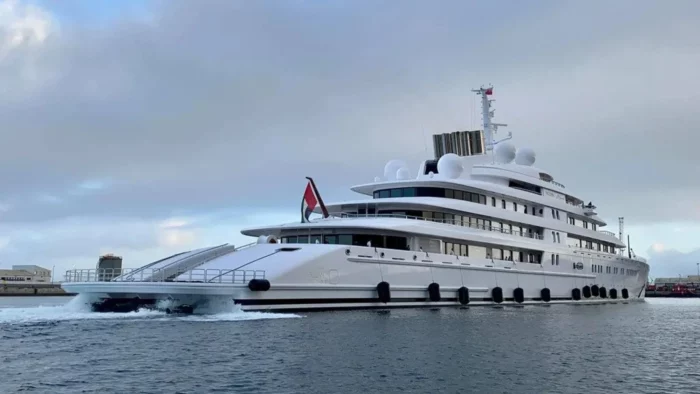
As we mentioned above, people have different opinions about how big a yacht has to be. The bare minimum seems to be at least 33 feet. That said,I have even seen smaller boats called yachts but let’s say, at a minimum, any vessel under 30 feet will always be a boat of some kind and would rarely if ever be properly called a yacht.
Larger boats exist and are not yachts, of course, but these can be sport fishing boats, catamarans, even large pontoons, houseboats and more.
Yachts can start at that low range and get up to incredible sizes which we will touch on in a moment. The largest yachts can get close to 600 feet.
Mega Yachts vs Larger Boats

Once a yacht hits 120 feet people often call it a super yacht. There doesn’t seem to be an easy to find historical reason why 120 feet is the cut off that makes a super yacht. As yachts grew even larger, 200 feet became a sort of milestone for where a superyacht became a mega yacht. And nowadays, with even bigger yachts available, 400 feet is where the cut off often begins for yachts known as gigayachts.
Now, when it comes to large boats, here’s where things get fuzzy. You can find sport fishing boats that are over 120 feet, or sailboats that reach the same length and much bigger. But these are often also called yachts. Sailing yachts, sport fishing yachts. So there’s a line there that boats can straddle even if, under a certain length, the same boats wouldn’t be considered yachts.
Part of the transition from boat to yacht at large sizes comes from the fact that a massive boat is obviously expensive which means more luxury features are likely to be included which means it’s more likely to be considered a yacht.
But large commercial vessels, military and law enforcement vessels, and some search and rescue vessels used by government agencies or private companies can also reach lengths of 60 feet to 100 feet and more and these would obviously never be called yachts. It’s that key feature of being used for recreation that you need to factor in.
Yacht Engines vs Boat Engines
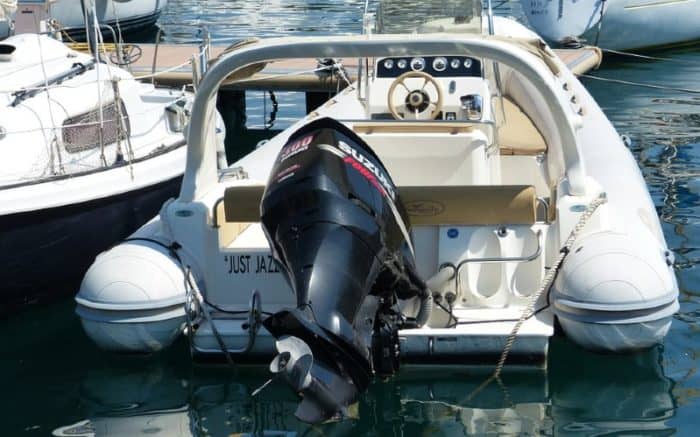
Obviously a sailing yacht won’t factor in here but motor yachts and hybrid yachts have very powerful engines because yachts tend to have a much higher gross tonnage than your average boat of even the same length. Keep in mind that some yachts, especially mega yachts, may have up to seven decks. You need a lot of power to keep that moving. Some of the biggest yachts in the world have a fuel tank capable of holding up to a million liters. That’s going to leave your normal outboard motors in the dust.
Boat Crew vs Yacht Crew

Yacht crews are often found wearing uniforms and have specialized training not just to run the vessel but also to see to the needs of the guests. Since yachts are often characters, the guests on board are like guests at a hotel and treated as such. Large yachts are a lot like a private cruise service.
Boats don’t always even need a crew and if a boat does have a crew it probably means the boat is a commercial vessel of some kind – think of a commercial fishing boat, for instance.
Boat Amenities vs Yacht Amenities

Here’s a place where boats and yachts often part ways significantly. There are some pretty luxurious houseboats and pontoons and cabin cruisers out there to be sure, but when you look at what you can get on a megayacht there’s barely a comparison.
The most expensive yachts have multiple helipads, swimming pools, tender garages that contain things like jet skis, gyms, high tech yacht electronics, massage rooms, bars, movie theaters, mini subs, discos, you name it. These really are like private cruise ships.
Now obviously it’s not fair to compare a 12 foot jon boat to the 600 foot Azzam yacht but these are clearly as different from each other as any two things can be. Yachts are known for their luxury and they can truly push the limits sometimes.
Yacht Locations vs Boat Locations

Smaller boats are obviously more capable of handling coastal and inland waters than any yacht you’re likely to find because that’s what they’re meant for. Yachts are typically, but not always, found in saltwater, usually around vacation destination areas like the Bahamas, the Mediterranean, Florida, tropical islands and so on. Boats are at home anywhere you find water.
There are definitely yachts on inland lakes like the Great Lakes, but they are decidedly less common.
Yacht Price vs Boat Price
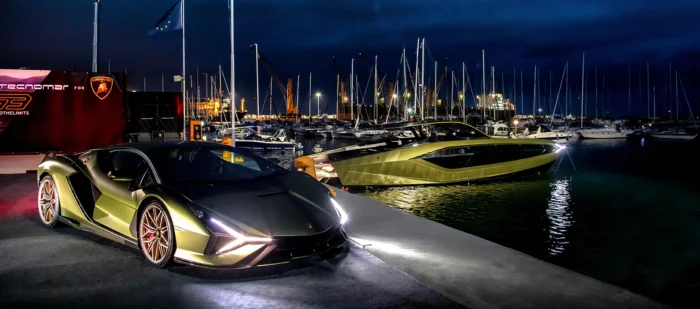
Here’s where things get really different. You can get a little fishing boat for a few hundred dollars if you want. The Eclipse yacht cost $1.5 billion. So that’s the range we’re dealing with in terms of yachts vs boats when it comes to cost. If you try to meet in the middle with a 33 foot sport cruiser boat you might pay $200,000. But the average price for a yacht in 2021, and this means a vessel between 56 feet and 79 feet, was $1.1 million.
The Bottom Line
All yachts are boats but not all boats are yachts. In general, a yacht is a larger vessel that is used strictly for recreational purposes. It’s defined by its speed and its luxury and is often at the higher end of the price range. You tend to find yachts in popular vacation spots and they come in at an average price over $1 million.
Boats are generally smaller vessels and can be used for everything from fishing to cruising to commercial, police boats and military purposes. They can be extremely simple and, as a result, also incredibly cheap compared to yachts as well.
My grandfather first took me fishing when I was too young to actually hold up a rod on my own. As an avid camper, hiker, and nature enthusiast I'm always looking for a new adventure.
Categories : Boats , Yachts
Leave a Reply Cancel reply
Your email address will not be published. Required fields are marked *
Save my name, email, and website in this browser for the next time I comment.
More in Boats
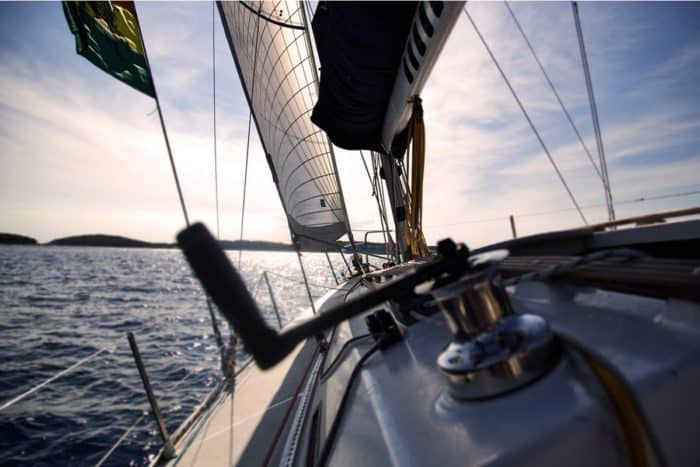
What Is A Gunwale?

131 of the Best Hawaiian Boat Names
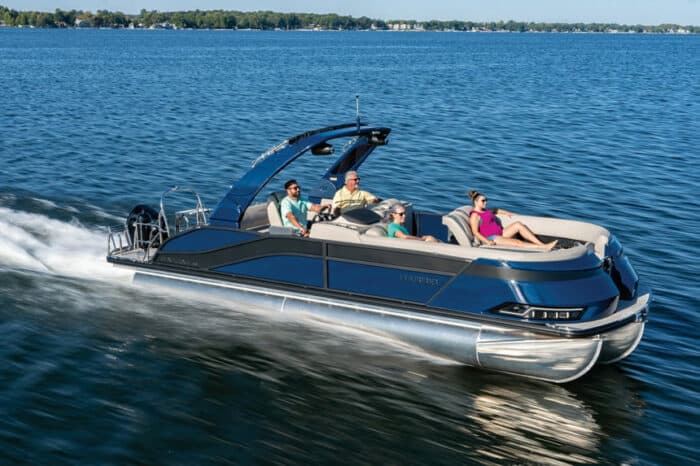
167 Patriotic Boat Names

The 138 Best Boat Names for Dog Lovers


The People’s Poncho Review and Ratings

Oru Lake Kayak Review

About Boatsafe
Established in 1998, BoatSafe is your independent guide into the world of boating, fishing, and watersports. We provide expert insights and detailed guides to help you find products tailored to your needs and budget.
Contact Boatsafe
- Address: 4021 West Walnut Street. Rogers, AR 72756
- Phone: (479)339-4795
- Email: [email protected]
Site Navigation
- How We Test
- Corrections Policy
- Privacy Policy
- Terms & Conditions
- Editorial Policy
- Affiliate Disclosure
Our Reviews
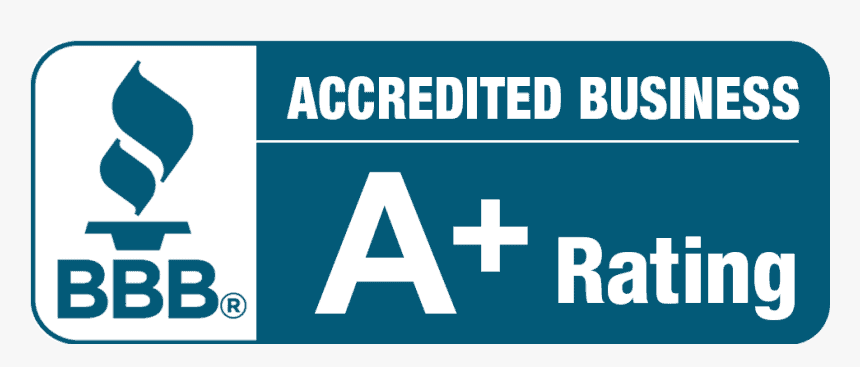
All content is © Copyright 2024. All rights reserved.
- Yachts for Sale
- Sales Report 2024
- FAQ – Luxury Crewed Yacht Charters
- FAQ – Bareboat charters
- FAQ – Sell your Boat
- FAQ – Buying a Yacht
- How Much does it Cost to Charter a Luxury Yacht?
- All Blog Posts and News
- Yachting for beginners
- Indian Ocean
- Mediterranean
- Sales & New build
- Motor Yacht
- Event & News

Yacht Vs Boat: What is the Difference?

Definitions of words such as “yacht”, “boat”, or even “ship” are not always clear. Most of us make our own (unspoken) rules up, while others simply go with the flow and call their vessel whatever comes up at the moment.
So when does a boat become a yacht? Are all boats yachts? Are all yachts boats? What about ships?
Here is our subjective take on this vital matter.
The definition of a boat
In spoken or written English, it seems that anything able to float can be called a boat . It has little to do with size, function, or fit-and-finish. It is the most general term.
According to many dictionaries, boats are defined as “small vessels for traveling over water, propelled by oars, sails, or an engine”. So, a boat can have recreational purposes as well as commercial ones, but it is expected to be quite limited in size.
A yacht : our unofficial definition
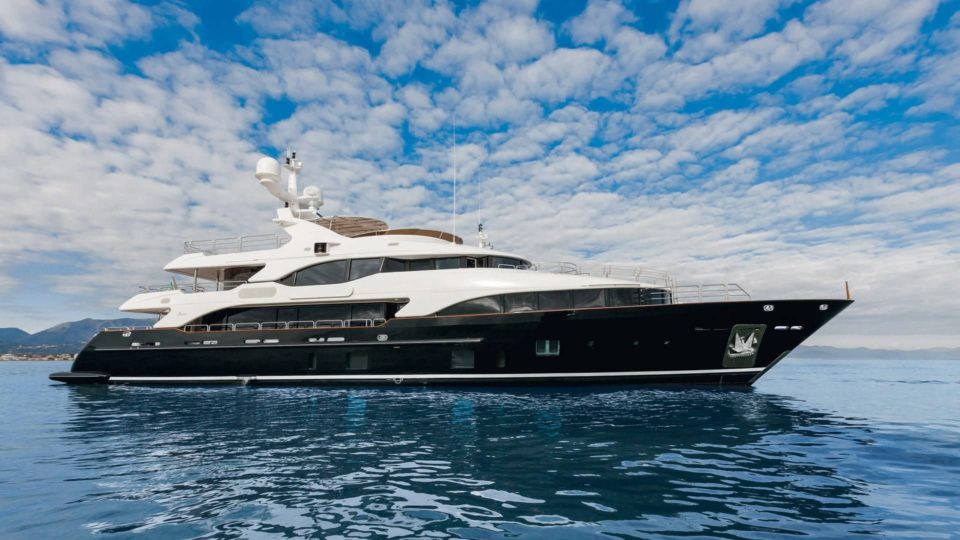
The word “yacht” generally refers to a more sophisticated craft than a boat or a ship.
Yachts can be sailed or motorized: so catamaran, monohulls, or even trimarans can also be called “yachts”.
To deserve their name, they have to be comfortable, spacious, well equipped and built with luxury in mind.
Regarding their functions, yachts are purely recreational.
They are designed for relaxation and leisure first, even though they can be suitable for long stays at sea and transatlantic crossings.
To sum up, as soon as your boat is a certain size and boasts several luxury features designed for leisure, then you can call it a yacht.
The definition of a ship
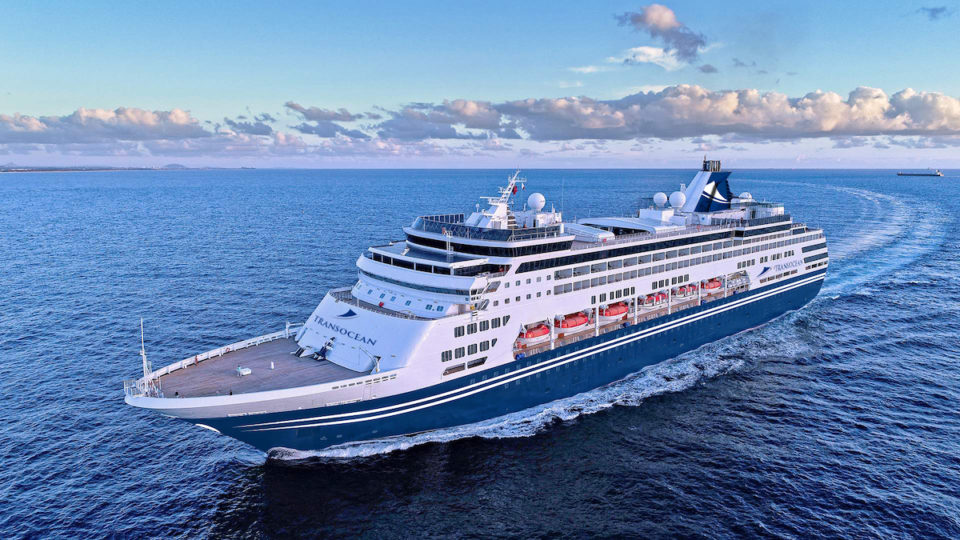
According to the Oxford dictionary, a ship is “a large boat for transporting people or goods by sea”.
The ship is associated with something larger and less fancy than a boat.
It is a “working” vessel, unlike yachts which are made for leisure purposes.
A ship usually needs a full crew to operate. A yacht might need a full crew to operate depending on its size. A boat usually implies smaller vessels and therefore most of them don’t need a crew.
Common vessels that are called “ships” include ferries, petrol tankers, or warships.
Details to look at to know if you are dealing with a boat, a yacht, or a ship
The size: one of the strong factors to identify a boat vs a yacht.
Size is one of the most determining factors to know how to call your vessel.
A boat is often expected to be smaller than a ship or a yacht. Generally, a vessel anywhere from 15-30 feet in length will be called a boat.
Starting from 15 meters (50 feet), private luxury recreational crafts can be considered yachts.
Starting from 24 meters (79 feet), you are entering the superyachts area.
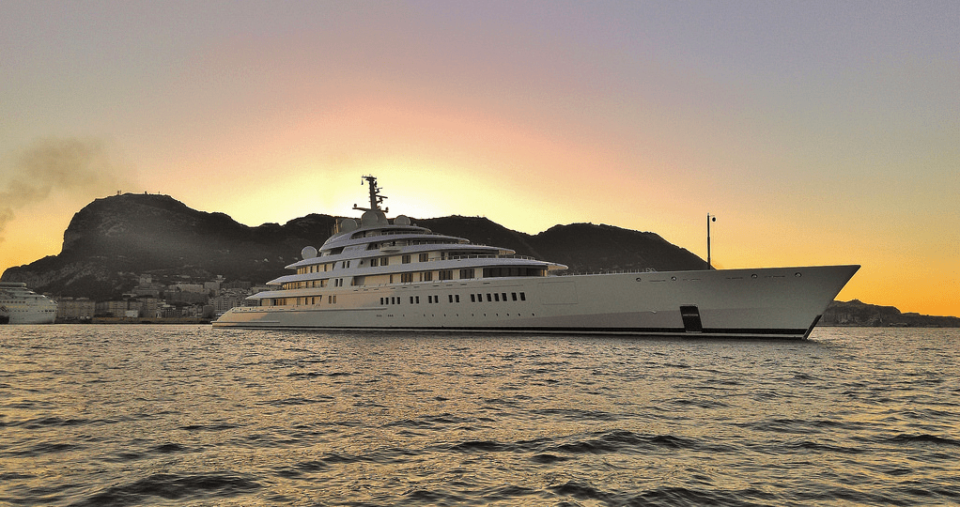
Above, 50 meters can start talking about mega yachts. Obviously, there is no upper limit to mega yachts. Currently, Azzam, the world’s biggest yacht is 180 meters long (590 feet).
So when it comes to differentiating between boat and yacht, size does matter.
But size alone isn’t enough to know the sort of vessel you are dealing with.
The function of a yacht vs a boat isn’t the same
The main function of its vessel is one of the easiest ways to recognize a boat from a ship or a yacht.
Boats can be used for both leisure and business (fishing, day trips, police, …) depending on their size and options.
On the other hand, a yacht has a purely recreational function. Unlike a “boat”, it can be used for long voyages on oceans thanks to its larger size, better propulsion, advanced electronics, guidance, and safety equipment, but especially thanks to its comfort. Yachts can protect passengers from bad weather and the comfortable cabins can accommodate several passengers for long stays. Yachts are also often available for charter with a staff taking care of the guests at a high standard of comfort.
Ships primarily have commercial functions. It can be forwarding freight, crossing the sea with thousands of people on board, or going on a warzone with a unit and its material.
To add to the confusion, some mega yachts such as Christina O could be called ships due to their initial function or their size.
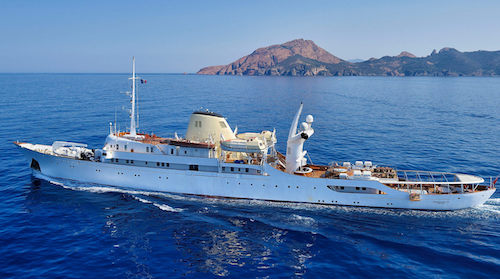
Besides these exceptions, it’s quite obvious to recognize a yacht from a boat or a ship simply by its size and the luxury of its amenities.
The luxury on board makes it a yacht or a boat
A yacht is a recreational vessel designed with luxury and comfort in mind.
The facilities, be it furniture, rooms, living spaces, safety equipment, and navigation systems are all luxurious on a yacht.
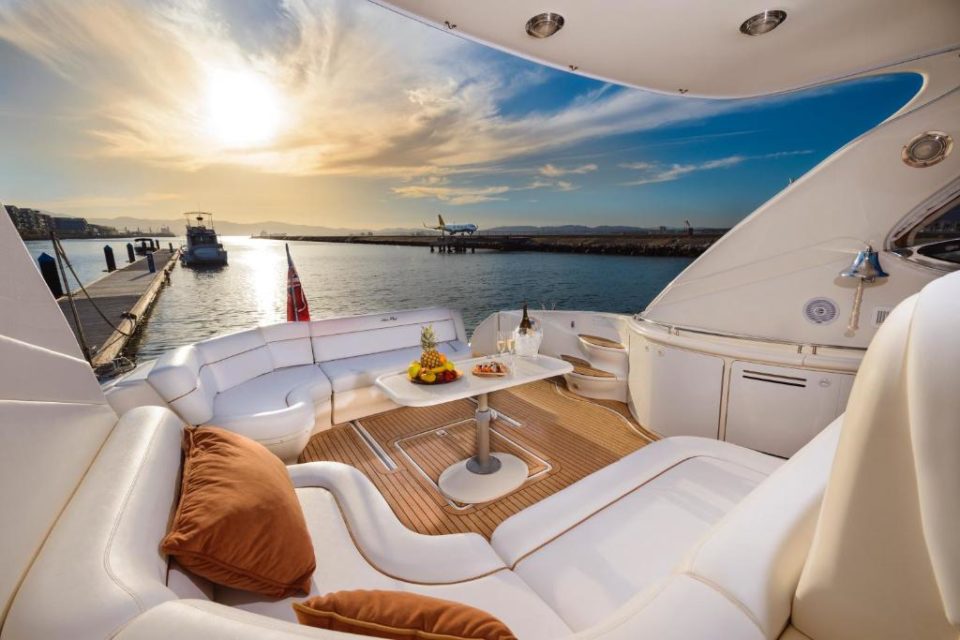
The notion of space is often very important to feel comfortable on board, even for long cruises. The largest and most luxurious yachts have various spaces such as beaches, sundecks … to make life on board as comfortable as on land, if not more.
To make it simple, if a vessel is luxurious, then more often than not, it’s a yacht.
Check out all our luxury yachts here.
The propulsion of the vessel can determine whether it’s a yacht or a boat
A boat can be rowed, propelled with its sails, or with one or several engines.
Motorized small boats can have impressive speed on the water thanks to their lightweight, but their engines are usually less powerful and sophisticated than yacht engines.
Some boats can sail long-distance when they are well equipped, such as solar panel, water maker etc.
On the other hand, equipment on yachts make them able to operate over very long distances, including crossing oceans.
Most ships are designed to cross the sea with safety and they are designed for this objective.
Looking at the propulsion is therefore not enough to know if a vessel is a boat, a yacht, or a ship, although it can give you a few clues.
The crew on board can tell the difference between a boat and a yacht
Commercial ships and professional boats obviously have experienced captains to sail them around the rough corners of the globe.
For yachts and leisure boats, it is less obvious.

Big yachts owners usually employ professionals to sail, but also manage the daily operations onboard. The number of enrolled crew members depends on the yacht’ size.
Usually, boats do not need a professional enrolled skipper to operate, if you know how to sail. But you can always rent a boat and hire a skipper to bring you wherever you want.
So, what should you call your vessel?
To make it simple, if your vessel is a luxury craft above 50 feet, designed for fun, recreation, relaxation, and comfort, then call it a yacht.
Anything below that size, call it a boat.
If you own a working craft rather than something recreational, especially if it’s a long vessel, then you are free to call it a ship.
But let’s be honest, nobody will blame you if you use the wrong term. You are entirely free to continue calling your canoe a yacht if you like it that way!
Read Also : How Much does it Cost to Charter a Luxury Yacht?
Starting from 50 feet (15 meters), a pleasure boat is usually considered a yacht.
Yes, a 40-feet boat can be considered a yacht if it has recreational use and a luxurious outfit. Otherwise, it is only a boat!
By definition, a ship is a large vessel that crosses oceans and other deep waters for commercial purposes. It carries cargo or passengers or performs specialized missions, such as defense, research, and fishing. So a boat becomes a ship when it is big, it weighs at least 500 tonnes or above and it has commercial use.
Private recreational boats from 33 feet are actually yachts. Luxury is also an important point once defining a yacht.
No. If the boat doesn’t have a recreational purpose, if it is below 33 feet long (10 meters), or if it is not luxurious, it is not a yacht but a boat!
RELATED ARTICLES MORE FROM AUTHOR
Luxury crewed yacht charters – frequently asked questions, luxury yachts for charter perfectly suited for 10 guests, skipper’s job and responsibilities: what you should know.
- Testimonials
- Privacy Policy
- Anchoring & Mooring
- Boat Anatomy
- Boat Culture
- Boat Equipment
- Boat Safety
- Sailing Techniques
Yacht vs Boat: What is the Difference?
If you are new to the boating world, it is easy to get perplexed by the terminology. One question frequently emerges about defining and discerning the difference between a yacht vs boat. This is mainly because these terms have overlapping aspects.
However, there are clear-cut differences in size, functionality, luxury, etc. In this blog, we will unravel these differences and provide a comprehensive analysis and comparison of each other. This guide touches upon various aspects, including these vessels’ definition, design, amenities, crewing, and recreational uses.
Key Takeaways
- Yachts are generally larger and more luxurious than boats. A vessel typically becomes a yacht when it is over 33 feet long, although amenities and luxury also factor into this classification.
- Boats are often smaller and have a practical design. They are equipped with features directly related to their intended use, such as fishing or watersports.
- Both yachts and boats can offer a range of recreational activities. However, yachts are more about leisure and comfort, while boats are about specific recreational pursuits.
- Yachts usually require a crew to operate and utilize more sophisticated systems. Boats, on the other hand, can often be operated by a single person or a small group and may use simpler systems.
- Understanding when a boat is considered a yacht (and vice versa) is essential. The basic rule of thumb is that all yachts are boats, but not all boats are yachts. Size, luxury, and crew requirements contribute to a vessel's classification.
- Superyachts or megayachts are a whole new level of luxury. These vessels exceed 164 feet and feature an even higher level of luxury.
What is a Boat?
At the most fundamental level, a boat is a watercraft designed for transportation, whether for fishing, sport, travel, or even as a place of residence. Boats come in various designs and sizes – from small wooden canoes that can only fit a handful of people to large, motorized vessels designed for longer voyages across the sea.
There are many different types of boats, each suited for other uses. For fishing enthusiasts, there’s the fishing boat, equipped with specialized features like fishing rod holders and a trolling motor.
For those who value stability and space, the pontoon boat, with its flat deck and large, buoyant tubes, is an ideal choice. Sailboats, designed for propulsion primarily using sails, are for those who wish to harness the power of the wind for their seafaring adventures.
What is a Yacht?
You’re not far off if you hear the term ‘yacht’ and think of luxury and opulence. Originally derived from the Dutch word ‘jacht’, meaning ‘hunt’, the term was used to refer to fast, lightweight vessels that the Dutch navy utilized for chasing down pirates.
However, ‘yacht’ is more colloquially known as a symbol of wealth and extravagance. They are large, luxurious, professionally crewed motor or sailing boats. The types vary greatly – from sleek racing yachts built for speed to mega yachts, essentially floating mansions equipped with every possible luxury.
Motor yachts, as the name suggests, are powered by engines, allowing for greater speed on the water and the ability to cruise at a steady pace through calm and rough seas alike. On the other hand, sailing yachts like monohulls or catamarans utilize the wind as their primary means of propulsion, offering a serene and more eco-friendly experience.
The Difference Between a Yacht vs Boat
Size matters.
One of the most straightforward differences between a boat and a yacht is their sizes. While there’s considerable overlap, it’s safe to say that size does play a significant part in helping classify a vessel. Generally, smaller vessels are frequently referred to as boats, while larger ones are usually categorized as yachts. But how large is large enough to be called a yacht?
Traditionally, a yacht tends to be a boat that is above 33 feet in length. Nonetheless, the exact size that qualifies a boat to be called a yacht may vary. Notably, the term “megayacht” or “superyacht” is reserved for particularly luxurious yachts over 164 feet long.
Construction and Design Differences
A vessel’s design can also indicate whether it is a yacht or a boat. Yachts tend to be built with more attention to luxury and comfort, often equipped with state-of-the-art amenities, and their design caters to extended voyages and overnight stays.
Boats, on the other hand, favor functionality and are typically built to serve specific purposes – like fishing, sporting, or basic transportation. The design varies greatly depending on their intended use, but generally, they are less complex and tend to have a simpler layout with fewer amenities.
When it comes to construction, they both use various materials such as wood, fiberglass, or metal. However, yachts often use more advanced materials and technologies in their construction to enhance their performance, stability, and durability.
An In-depth Look at Boat and Yacht Amenities and Features
Amenities and features common in boats.
While boats may not be as lavish as yachts, they do come well-equipped for the purposes they serve. For instance, fishing boats may have built-in rod holders, bait wells, and top-notch fish-finding electronics. Pontoon boats, perfect for relaxed cruising and partying, might feature BBQ grills, coolers, and spacious seating spaces.
Sailboats may come equipped with features suited to longer voyages — compact kitchens, “galleys”, and sleeping cabins. However, the amenities in boats are generally functional and designed more for utility than comfort.
Luxurious amenities and features of yachts
When we cross over to the world of yachts, luxury takes center stage. Even the smaller class of yachts come equipped with plush sleeping cabins, fully equipped kitchens, spacious, elegantly furnished lounge areas, and often, en-suite bathrooms.
Moving up to larger yachts, one can expect extravagant add-ons such as on-deck Jacuzzis, home theatres, state-of-the-art sound systems, gyms, and helicopter landing pads!
Boat and Yacht Engines and Electronics
Understanding what powers each vessel and the technology they harness can help further distinguish between them.
Boat engines
Boats, especially motorized ones, are typically powered by inboard engines or outboards. Outboards are commonly found on smaller boats like fishing or bass boats. They are self-contained units containing the engine, gearbox, and propeller, conveniently mounted outside the boat on the transom .
On the other hand, inboard engines are built inside the boat’s body and are typically found on larger boats designed for speed and power. Regardless of the type, boat engines are designed for functionality and dependability.
In terms of electronics, boats usually come with basic equipment such as navigation lights , depth finders, and often, fish-finding sonar for fishing boats. Most boats also have a VHF marine radio for emergency communication.
Yacht engines
Yachts, particularly motor yachts, tend to employ larger and more powerful engines, given their size. A yacht’s engine must work harder than a typical boat’s to move the vessel itself and power the amenities onboard. Some even use multiple engines for enhanced speed and smooth sailing.
Advanced and high-tech yacht electronics
Boats, typically used for shorter, near-shore trips, often utilize basic navigation systems, GPS, and chart plotters and can often be used by someone with some experience and a basic understanding of boating rules.
Conversely, the longer and more complex journeys yachts often undertake necessitate comprehensive onboard systems, including RADAR , AIS, autopilot, and advanced charting systems. As a result, navigating a yacht, especially those in the super or mega range, needs a higher level of maritime knowledge, significant experience, and even official licensing.
In addition, luxury yachts may possess digital control systems capable of managing everything from the yacht’s movement, stability, and positioning systems to its onboard amenities.
As yachts increase in size and complexity, it is common for them to require the assistance of a full crew. Compared to boats that often can be sailed single-handedly or with a minimal crew, larger yachts, particularly the mega or superyachts, necessitate a highly skilled multi-person team to safely and effectively manage their operations.
Think of a yacht as a floating luxury hotel—it needs chefs to prepare meals, engineers to maintain the equipment, stews for housekeeping, deckhands for upkeep and safety, and a captain to navigate and make executive decisions.
Yacht Crews
Yacht crews are specialized professionals who ensure the smooth functioning of the yacht. Depending on the size of the yacht, the crew’s size and composition can vary significantly. For instance, a smaller yacht might only require a handful of crew members. However, the largest yachts in the world can staff up to 50 crew members or more.
The yacht captain is the most critical member of any yacht crew, responsible for the vessel’s safe operation, crew management, navigation, and compliance with maritime laws.
Recreational Uses and Purposes of a Yacht and a Boat
With a recreational boat, you can dive into a wealth of activities. For fishing enthusiasts, equipped with all essential gear, a fishing boat can offer an unparalleled experience of peace and tranquility on the water as you patiently wait for the perfect catch.
Speedboats designed for water sports provide adrenaline-packed activities such as water skiing, wakeboarding, and tubing. Sailboats offer the timeless, soul-soothing experience of cruising powered by the wind.
With their large, flat decks, Pontoon boats are perfect for leisurely cruises, floating parties, and even an opportunity for sunbathing.
How Yachts are Used for Recreation
Yachts tend to offer a broad spectrum of high-end leisure activities. Imagine swimming in an on-deck pool or open sea, soaking in a hot tub under the stars, dining on gourmet meals prepared by a professional chef, or simply lounging on spacious decks sipping cocktails as the yacht cruises. Larger yachts often come with water toys like Jet Skis, inflatable slides, kayaks, and even diving gear. They serve as excellent venues for parties or exclusive events.
Boats vs Yachts: When Does One Become the Other
When a boat is considered a yacht.
As already touched upon, size is often the most conspicuous factor. Traditionally, vessels over 33 feet are considered yachts. However, merely surpassing a certain length doesn’t necessarily warrant the yacht title.
The level of luxury and the presence of amenities also play a crucial role. Suppose the vessel features high-end accommodation with bedrooms or cabins, a fully equipped galley (kitchen), lavish lounge areas, a professional crew, and other plush amenities. In that case, it is more likely to fall into the yacht category, even if it’s on the smaller side.
“All Yachts are Boats, but Not All Boats are Yachts”
This phrase neatly sums up the essential takeaway. All yachts can be classified as a type of boat, with yachts being a specific, luxury-equipped, and larger subset of the general boat category. However, not every boat can be a yacht, as many lack the size, luxury components, and, often, crew requirements typical of yachts.
Superyacht or Megayacht
The terms are industry shorthand for a yacht above and beyond the average in size and luxury. These terms commonly apply to yachts over 164 feet in length.
However, it’s not just the size that counts. What truly defines a Superyacht or Megayacht is its luxury level and the sophistication of its amenities. Often coming with movie theatres, gyms, several high-end suites, personal staff, and even helicopters or submarines, these vessels are floating luxury resorts and represent the highest echelon of yachting luxury.
Final Thoughts
A yacht is considered a specific type of boat that is characterized not just by its size but by its luxury, elegance, and sophistication. From a simple fishing boat to a grand megayacht, each vessel offers a unique way of experiencing our water bodies’ vastness and beauty. There’s a boat, or a yacht, for every type of sailor out there, and in understanding the differences and similarities between the two, you’re one step closer to finding the perfect vessel for your maritime adventures.
The primary distinction lies in their size and purpose. While the word yacht was derived from a Dutch word meaning hunt, it now refers to a luxury leisure vessel, usually larger. On the other hand, a boat is a generic term used for various sizes of water vessels. Pleasure boats obviously can be smaller-sized vessels, though when a boat becomes a certain size, it may be referred to as a yacht.
Technically, a yacht is a boat, but due to its larger size and luxury status, it is often not referred to in the same category as smaller, utilitarian boats or larger commercial vessels like cruise ships.
No, not all boats can be classified as yachts. The defining characteristics that make a boat a yacht include size, use, and luxury. The definition of a yacht typically includes vessels of around 35 feet and over that are designed for luxury or pleasure.
Yachts differ from smaller boats in their larger size, design, and purpose, and often in their amenities. Unlike small boats, yachts are designed for extended pleasure cruises or racing and are usually equipped with sleeping quarters, kitchen facilities, and high-tech electronics.
These are larger versions of yachts, usually over 80 feet. These yachts can range considerably, with the largest known superyacht being over 590 feet long. Like yachts, they are equipped for luxury cruising but are often capable of long-range, ocean-going voyages and usually have a professional crew on board.
While many luxurious boats exist, yachts are generally considered more luxurious due to their size and amenities. These include spacious lounges, multiple deck levels, master suites, and guest cabins.
Yes, generally speaking, yachts are far more expensive than regular boats. This is due to their larger size, the materials used in their construction, their powerful engines, and the luxurious amenities they offer.
Not necessarily; the functionality of a vessel comes down to its purpose. While yachts are designed for comfort and recreational purposes, small boats can be created for various purposes, such as fishing, transport, or even police boats.
How Many Boat Engine Hours Is a Lot?
Understanding the boom of a boat, related posts, rib (rigid inflatable boat): a comprehensive guide, sib boat: a comprehensive guide, choosing the perfect dinghy or tender boat.
- Cookie Policy
- Privacy Statement
© 2023 TIGERLILY GROUP LTD, 27 Old Gloucester Street, London, WC1N 3AX, UK. Registered Company in England & Wales. Company No. 14743614
Welcome Back!
Login to your account below
Remember Me
Retrieve your password
Please enter your username or email address to reset your password.
Add New Playlist
- Select Visibility - Public Private

Boating Basics Online is reader-supported. When you buy via our links, we may earn a commission at no cost to you. Learn more
Difference Between a Boat and a Yacht That You Want to Know
Written by J. Harvey / Fact checked by S. Numbers
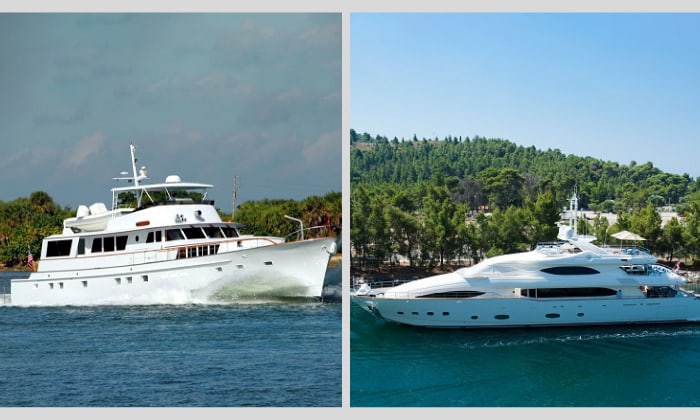
When people see a gleaming white boat on the water that exudes a certain prestige, such a luxurious-looking boat is immediately thought of as a yacht. But what exactly is the difference between a boat and a yacht and how do you differentiate between them?
We’ll take a closer look at yachts and make a comparison between them and boats. Let’s also examine the characteristics of boats, so we can have an easier time identifying them.
Let’s get started.
Table of Contents
2. Facility
What is a boat, 2. propulsion, 3. operation time, what is a yacht, 4. performance, comparison: yacht vs boat.
- Yachts have no set limit, while a large boat exceeding a certain size is called a ship
- The superyacht, mega yacht, and Giga yacht are larger yacht types
- A yacht is usually a recreational boat that focuses on comfort amenities
- Boats usually do not focus as heavily on comfort amenities
- Boats have a wide variety of purposes
- Yachts are mainly for recreational purposes and entertaining guests
The boat is a watercraft that traverses the surface of the water. There are many types of boats, and they have a very wide range of sizes, lengths, and designs. Boats also cover a very wide range of uses and purposes.
Fishing boats, police boats, trading boats—there are many uses for boats. There are also many other boats that are specialized for other activities such as racing.
Characteristics of Boats
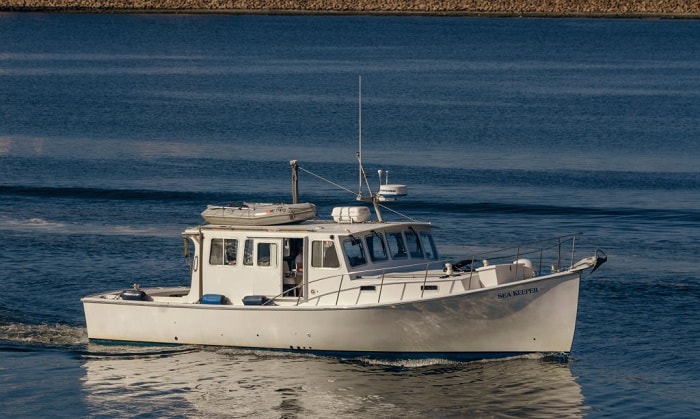
Boats can be under 16 ft and reach up to 64 feet. However, there are much bigger boats that are well over the usual limits for boat length and weight; these boats include tugboats and certain freighters.
Whether a big boat is called a ship depends on its purpose.
Larger boats are called ships, but it’s usually their weight and purpose that defines this classification. In some countries, purpose alone distinguishes ships from boats. Usually, a boat for transporting goods and passengers through oceans is considered a ship.
There are many types of propulsion used for the different types of boats. They fall into one of three categories: human-powered, wind-powered, or engine-powered. Human-powered boats are those that need people to row using oars or paddles.
The sailboat is a wind-powered boat that relies on sails to move and is highly dependent on the wind. Sailboats in the past that relied on trade winds to ferry goods between countries are good examples.
Engine-powered boats refer to boats with motors, regardless of the type of motor used. A wide variety of engines have been used for boats such as the steam engine and the modern engine. Small engines can power smaller vessels with ease.
Another distinguishing point of boats is their operation time or how long they can sail out in the open sea. To be more accurate, it’s their operation limit.
With their smaller size and limited living space, boats cannot sail for long periods and have to dock regularly. On the other hand, a ship can sail for extended periods.
Standard boats do not require a lot of people to operate and are typically operated by as few as one person. However, it’s not just that boats don’t need a full crew to operate, they just don’t have enough space.
The definition of a yacht is tricky and what size boat is considered a yacht is difficult to answer definitively. Taking a look at boat vs yacht does make it easier to understand what yachts are.
While yachts are boats, many are able to distinguish boats and yachts due to the latter’s extravagant appearance, but there is more to yachts than being just a pretty floating object. A yacht needs to have style and substance: it needs to have a purpose; it needs to have a high level of performance; and it needs to look good.
The word yacht comes from the Dutch word “jacht” meaning hunt. As far as naming is concerned, whether a vessel’s a yacht is really up to the manufacturer.
Is a yacht a ship? No, a ship is used for commercial purposes, not recreational activities, unlike yachts.
Generally, yachts need to have a few characteristics.
Characteristics of a Yacht
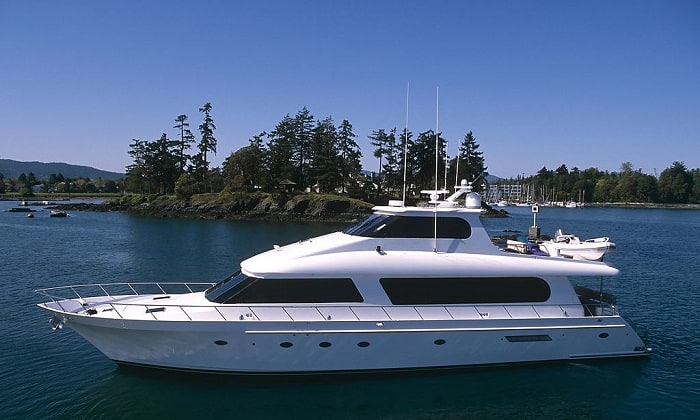
While there are no standard yacht sizes in feet, there needs to be enough space on a yacht for comfort amenities. Living space is considered a necessity due to the fact that the concept of yachts came about when a hunting boat was used by the Dutch navy to entertain important guests. In general, a yacht is 33 ft or longer in length.
A few other factors that also come into play are crew space, recreational amenities, and cargo space. Currently, the biggest recreational yacht is the Azzam, which is 590ft long. Yachts are also expected to have a high level of performance, which means they must have enough space for powerful engines and operation systems.
Big yachts often fall in three categories: Super yachts, mega yachts, and giga yachts. Super yachts are over 100 feet long. Mega Yachts are usually longer than 2oo feet, while Giga yachts are much bigger and reach lengths of over 300 feet.
Historically, yachts have been known to be sailing yachts. There was a time when people were doubtful of motorized boats being considered yachts. This is due to the first yachts being wind-powered and the design staying close to the original for around three centuries.
Motor yachts are more common these days, though yacht engines are never outboard motors. It makes sense, since it’s easy to imagine an outboard motor ruining the prestige of a yacht by over-protruding on one side.
Yachts are known for luxury. There is nothing more extravagant than making yourself feel at home in the middle of nature, and that’s exactly what a yacht affords. With its living quarters, seating area, dining space, and various other amenities, a yacht is like having your own hotel on the water.
Aside from having that level of comfort, being able to accommodate a number of guests on the yacht as well makes this a show of wealth like no other. High-tech yacht electronics make yachts easily capable of providing comfort at the level of a private cruise service.
Aside from the luxury that yachts afford, they’re also known for their high level of performance. Bigger yachts can run at speeds of around 35 knots or 40 miles per hour. Smaller yachts can also run fast, depending on the vessel’s weight and the amount of living space.
The world’s fastest yacht is a 41.5-meter long motor yacht that can go as fast as 70 knots. Many custom-built yachts reach speeds of over 40 knots in calm waters.
Now that you’ve seen the key characteristics of yachts, you won’t need to wonder about the difference between a boat and a yacht. While a yacht definition is still hard to make, you’ll no longer have a hard time identifying them.
If you know anyone else wondering what makes a boat a yacht, please share this article with them as well. Also, if you have any thoughts or comments about yachts, feel free to leave them below.
Remember to boat safely.

“My intention from the first day establishing Boating Basics Online is to provide as much help as possible for boaters who want to experience a first safe and convenient trip. So feel free to join us and share your beautiful journeys to the sea!”

The Key Differences Between a Yacht and a Boat | Yacht vs Boat
Olivia benjamin.
- June 20, 2023

It’s a common misconception to assume that there is no difference between a yacht and a boat, but there are notable differences between these two types of watercraft. Yachts are generally larger and more luxurious than boats, typically smaller and designed for recreational activities such as fishing or water sports.
While yachts and boats serve as leisure vessels on the water, yachts often boast additional amenities like air conditioning, multiple bedrooms, and even hot tubs. Conversely, boats tend to have simpler features, such as a small cabin or storage space for fishing equipment.
Gaining a deeper understanding of these differences can assist you in determining whether to choose a yacht or a boat based on your unique needs and preferences. So, let’s dive deeper into the distinctions between these two types of vessels.
What is a Yacht and What is a Boat?
Boats and yachts are two terms that are often used interchangeably, but there are distinct differences between them. Let’s examine the differences between boats and yachts.
What is a Yacht?
You might think of a yacht as a luxurious vessel often used for leisure activities, like sailing the high seas or throwing lavish parties on board.
Yachts are typically larger than boats and have amenities such as multiple cabins, bathrooms, kitchens, and entertainment areas. They’re designed for comfort and style rather than speed or efficiency.
However, it’s important to note that not all yachts are the same. Some may be motorized, while others require sails to move through the water.
Moreover, there are several types of yachts, including racing yachts, cruising yachts, and mega yachts, with sizes ranging from 33 to over 160 feet. Each type caters to specific preferences and requirements, ensuring a tailored yachting experience.
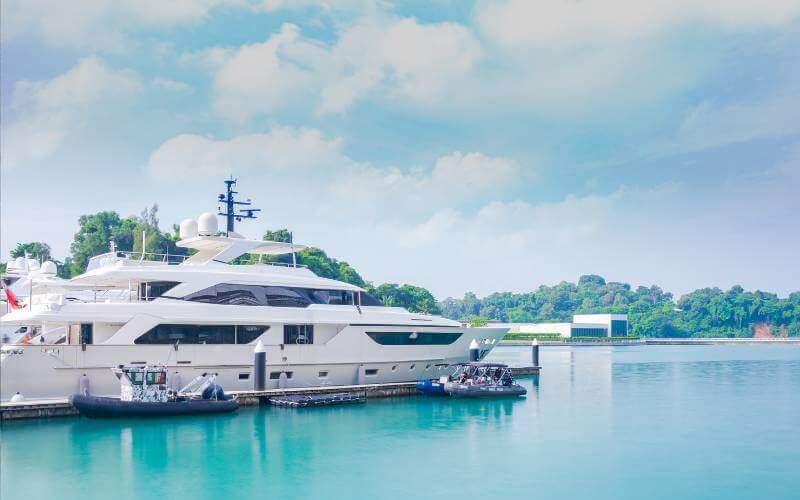
What is a Boat?
A boat is a watercraft primarily designed to float, move, and navigate on water. It is a generic term that refers to a wide range of vessels used for various purposes such as recreation, transportation, military, commercial use, or fishing.
Boats come in different sizes, designs, and types, each serving a specific need. Small boats like kayaks and canoes are used for recreational purposes, while larger boats like tugboats serve commercial purposes.
Whether used for pleasure or work, boats offer great maneuverability. They can navigate in shallow waters and tight spaces and come equipped with navigation and other systems.

Boat vs Yacht | What is the difference between a Yacht and a Boat?
Do you want to know the differences between yachts and boats? Well, there are several key points to consider.
A boat is a generic term used to refer to any small watercraft. At the same time, a yacht is a specific type of boat often associated with luxury and recreational purposes. Many differences exist between yachts and boats, including the use, size, construction of these vessels, and many more.
Let’s explore these differences in detail to help you understand the unique qualities of each type of watercraft.
Difference in Size
Yachts are typically larger than boats, often measuring over 40 feet long. While boats come in various sizes, they often range from around 20-30 feet in length.
Boats are usually smaller and built for leisurely activities like fishing or cruising on lakes and rivers. On the other hand, yachts are designed for luxurious living at sea and are often equipped with multiple cabins, bathrooms, entertainment areas, and even swimming pools.
The size difference between yachts and boats also affects their handling of the water. Due to their large size and complex systems, yachts require experienced crews to operate them. Boats, on the other hand, can be easily handled by anyone with basic boating knowledge.
Difference in Use
While both vessels are designed for water travel but serve very different purposes, boats are typically smaller vessels used for recreational activities such as fishing, water sports, and short trips along the coast. They’re also commonly used for transportation in areas with many waterways.
Yachts, on the other hand, are much larger and more luxurious than most boats. They’re typically owned by wealthy individuals or companies and used for leisurely cruising or entertaining guests. Some yachts can even be chartered for special events such as weddings or corporate retreats.
Difference in Technology
While many boats rely on traditional engines or rowing, yachts often incorporate cutting-edge navigation, communication, and entertainment technology.
For example, some luxury yachts have state-of-the-art autopilot, radar and GPS systems that easily navigate even the most treacherous waters. Additionally, many yachts are equipped with satellite phones and other communication devices that allow passengers to stay connected no matter where they are.
Conversely, boats have basic technology geared towards recreational purposes, like fish finders or depth sounders. Older boats may still use traditional analog instruments for compass bearing and navigation.
Regardless of size or purpose, one thing is clear – technology plays a major role in differentiating between a yacht and a boat.
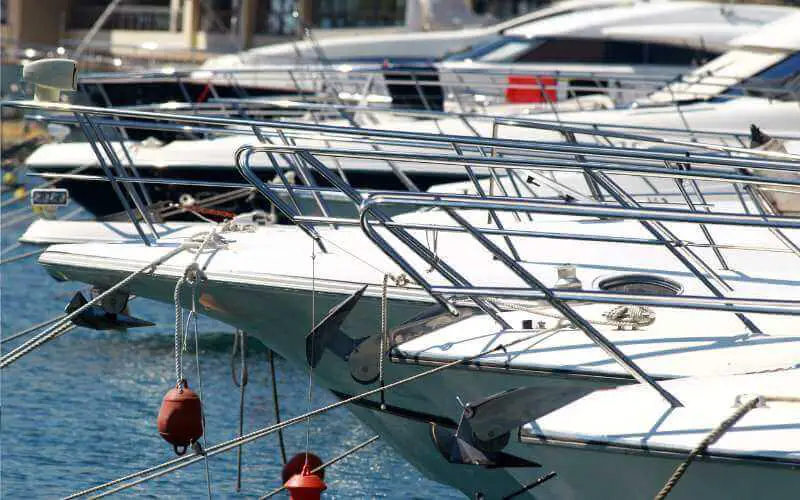
Differences in Power and Propulsion
When it comes to power and propulsion, yachts and boats have some key differences. Yachts are often equipped with larger, inboard engines designed for speed and endurance. In contrast, boats may have outboard motors that are smaller and better suited for recreational purposes.
Another key difference relates to the type of transmission used. Yachts often rely on multi-speed transmissions that allow the engine to operate at various speeds. Boats, on the other hand, may have simpler transmission systems that are designed for a lower level of performance.
The type of propulsion used is also important to consider. Yachts may be propelled by jets, controllable pitch propellers or other high-tech means, enabling them to perform well in various conditions. Boats typically rely on simpler propellers unsuited to more demanding environments.
Difference in Price
When it comes to price, yachts and boats are on opposite ends of the spectrum. Boats, being smaller and typically used for recreational purposes, can range from a few thousand dollars to a few hundred thousand dollars.
Yachts, on the other hand, are significantly more expensive. These vessels are often larger and more luxurious, costing several million to hundreds of millions of dollars.
The cost of owning a yacht goes beyond just the initial purchase price. Yachts require significant upkeep, including maintenance, insurance, and docking fees. However, yacht owners are often willing to pay high costs for the prestige and luxury of owning such vessels.
The Difference in Luxury and Comfort
Luxurious yachts have everything from plush interiors with high-end finishes to state-of-the-art entertainment systems. Many yachts also come equipped with luxurious bedrooms, bathrooms, and gourmet kitchens.
In addition to these features, yachts offer expansive decks and outdoor spaces for entertaining guests or simply enjoying the sun and sea breeze.
When it comes to luxury and comfort, there really is no comparison between a yacht and a boat. While boats may be functional for certain activities, such as fishing or water sports, they offer a different level of extravagance than you’ll find onboard a yacht.

Frequently Asked Questions
What is the cost difference between purchasing a yacht and a boat.
Before you set sail, remember, a yacht is not just a bigger boat. The difference between purchasing a yacht and a boat can be significant, with yachts typically costing millions while boats range from thousands to hundreds of thousands.
Are there any legal requirements for operating a yacht versus a boat?
To operate a yacht, you may need a captain’s license and have to follow specific regulations depending on the size of your vessel. For boats, requirements vary by state and type of boat but are generally less strict.
How does the size of a yacht compare to the size of a boat?
Yachts are generally larger than typical boats, ranging from 33 feet to over 160 feet in length. However, the size distinction between a yacht and a boat needs to be clearly defined and can vary depending on personal perception.
Are there any specific maintenance requirements for a yacht that differ from those of a boat?
Yachts require meticulous maintenance to ensure they remain seaworthy. This includes regular inspections, cleaning, and repairs. These tasks are more complex and costly than those typically required for boats but crucial for the safety of all onboard.
What is the largest yacht in the world?
As of 2023, the largest yacht in the world is the SOMNIO , measuring 222 meters (728 feet) in length. The yacht is under construction and due for launch in mid-2024.
A yacht can be likened to a floating mansion, replete with lavish amenities and luxurious features, often owned by affluent individuals who relish time at sea. These vessels boast multiple decks, spacious cabins, and even swimming pools.
In contrast, boats come in various shapes and sizes, ranging from small dinghies to large commercial tugboats. While some boats offer basic amenities like a small cabin or restroom, they cannot compete with the luxury of a yacht.
The primary distinction between a yacht and a boat lies in luxury and comfort. Yachts epitomize extravagance, providing amenities akin to a high-end hotel suite, while boats prioritize practicality and functionality.
Ultimately, choosing between a yacht and a boat depends on personal preferences and intended use.
A Guide to Naming Your Boat: Finding the Perfect Name for Your Boat
Naming a boat is an important and personal decision every boat owner must make. Whether you have just purchased a

What is the Steering Wheel on a Ship Called?
The ship steering wheel holds a special place in maritime history, from tales of daring adventures on the high seas

Best Way to Avoid Overloading Your Boat and Keep Your Boat Capacity Under the Weight Limit
Embarking on a boating adventure brings a sense of excitement and freedom. However, ensuring the safety and stability of your
Workshop Insider Newsletter
Be a workshop insider get our latest collection of news and announcements delivered to your inbox..., latest articles.
- June 25, 2024
- Boats , Marine Engineering
- June 24, 2024
Navigating the Darkness: Understanding Boat Navigation Lights and the Different Types
Boat collisions: how to avoid collisions with another boat.
- September 12, 2023
The Ultimate Guide to Pipeliner Welding Hoods: Features, Benefits, Buying Guide, and Best Practices
- Welding Helmets Buying Guides
- September 11, 2023

- Privacy Policy
- Terms of Use
- Affiliate Disclosure
“Boat” vs. “Ship”: Chart A Course To Understand The Difference
- Boat Vs. Ship
- Yacht Vs. Boat
Ahoy, me hearties! A true seadog worth their salt would never let aboard a landlubber who calls their ship a boat . That kind of mixup is the talk that gets you walking the plank!
In this article, we’ll sail the seven seas of nautical knowledge to define the difference between the words ship and boat , explain what they refer to in technical and casual use, provide examples of different kinds of both ships and boats , and we’ll even clear up the meaning of the word yacht .
🚢 Quick summary
In casual use, the word boat is often used to refer to any watergoing vessel, regardless of its size or how it’s powered. However, large oceanfaring watercraft—those that use multiple sails or engines—are more properly called ships . In contrast, the word ship isn’t commonly applied to smaller craft. The word yacht is typically used to refer to any larger noncommercial vessel—one used for sailing or other recreation, as opposed to business.
What’s the difference between a boat and a ship ?
By definition, a boat is “a vessel for transport by water,” “a small ship,” or “a vessel of any size built for navigation of rivers or inland bodies of water.” In casual use, the word boat is used to refer to any vehicle used to travel on the water—anything from a canoe to an ocean liner.
In this kind of casual and general usage, the word boat is often used to refer to watercraft of all sizes and types, as you can see in the variety of terms that include the word, such as sailboat , motorboat , fishing boat , rowboat , tugboat , paddleboat , and lifeboat .
In contrast, the word ship is typically reserved to refer to a large, ocean-faring vessel propelled by multiple sails or engines.
(Of course, the word ship is also used to refer to large, nonwater craft, such as airship and spaceship .)
In technical, nautical contexts, the word ship sometimes specifically refers to a sailing vessel that has three or more square masts. As is the case with boat , though, the word ship is applied in the name of a variety of large watercrafts, including cruise ship , cargo ship , pirate ship , battleship , longship , and steamship .
Go Behind The Words!
- By clicking "Sign Up", you are accepting Dictionary.com Terms & Conditions and Privacy policies.
- Email This field is for validation purposes and should be left unchanged.
In contexts where it’s important to distinguish the difference, the distinction made between ship and boat is typically based on the size of the craft being discussed and if it is used only for ocean or sea travel. Additionally, the word boat can refer to vessels that don’t have any sails or engines, such as a kayak or a rowboat, whereas the word ship usually refers to vessels with many sails or large engines. Even in casual usage, it’s very uncommon for someone to call a small craft a ship , unless they’re doing so jokingly.
One distinction made in nautical contexts is that the word ship often refers to vessels too large to fit inside other vessels. By contrast, the word boat is often used to refer to smaller craft that can fit inside larger ones. For example, a massive cruise ship may have a large number of lifeboats inside it.
What are you sailing? An ocean or a sea ? Learn the difference here.
Yacht vs. boat
The word yacht typically refers to a vessel used for private, noncommercial reasons (those other than business), such as sailing or racing. As a general term, the word yacht can refer to any watercraft that isn’t intended to be used to make money, which includes anything from racing sailboats to billionaires’ floating ultra-luxury mansions.
The word yacht is not used to refer to small vessels, such as row boats or canoes. In casual usage, a yacht may be referred to with the more general terms boat or ship , but certainly not all ships and boats are yachts .
What's the difference between "uncharted" and "unchartered" territory?
Commonly Confused

Hobbies & Passions
Word Origins
Current Events
- Name This field is for validation purposes and should be left unchanged.
Follow us —

- What’s the Difference Between a Boat and/or Yacht
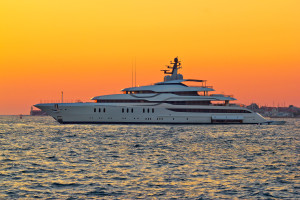
Boat vs. Yacht: What’s the Difference?
Your own personal bias can have a serious impact on what you consider a boat and what you consider a yacht. But truth be told, there is a general consensus on the topic and if you’re ready to know the differences, you’ve come to the right place.
Popular opinion suggests that a yacht is larger and more luxurious than a boat. But, is there a specific measurement that characterizes what it means to be “large” or “luxurious”?
Not particularly. And this brings us back to the same pressing question: What is the difference between a boat and yacht?
Countless Qualities Can Differentiate a Yacht From a Boat, But Which are “Correct?”
You could ask yourself a seemingly endless series of questions to differentiate a yacht and boat. For example:
- “Is a 38 footer a boat and a 42 footer a yacht because it’s bigger?”
- “Is a 35 footer worth $1 million a yacht and a 40 footer worth $100,000 a boat?”
- “Do features such as a galley, stateroom, or spa distinguish yachts and boats?”
- “Do yachts remain stable when you step aboard whereas boats rock back and forth?”
- “Are yachts only used for recreation whereas boats are used commercially?”
To be sure, all of these are great differentiating factors that could characterize yachts and boats alike.
But when it comes down to it, there are a few commonly accepted factors that differentiate yachts from boats.
The Real Difference Between Yachts and Boats
There are countless types of boats (dinghy, row boat, fishing boat, and sailing boat, to name a few). Regardless of size, boats are most commonly characterized by the fact that they are much more practical than luxurious and can be either motorized or non-motorized.
On the other hand, yachts are generally characterized by their large size and luxurious appearance. Regular yachts tend to measure around 34 feet whereas mega yachts are more than 100 feet and super yachts span over 200 feet.
And don’t even get us started on ships! These are extremely large sea vessels used for commercial purchases such as carrying cargo between ports worldwide or as cruise or passenger ships for transportation.
At Oceanic Yacht Management, We’re Proud to Offer Artisan Services to Discerning Yacht Owners Everywhere
At Oceanic Yacht Management, we’ve catered our craftsman yacht services to discerning owners for over 35 years. And if you’re the kind of yacht owner who would take offense to being told they own a boat, we’re the bespoke team of technicians you’re looking for.
Whether you need your yacht serviced or are interested in our one-of-a-kind Yacht-cierge offerings, we can help. Contact us today at (561) 406-4608 to discuss and address your unique needs (whether you’re home or away).
What’s a boat and what’s a yacht? It can be difficult to tell, but an important distinction to make nonetheless. Learn more about the difference with this helpful article from Oceanic Yacht Management!
- Privacy Policy
- Yachting 101
- 1825 NW Corporate Blvd Suite 110, Boca Raton,FL 33431
- (561) 406-4608
- [email protected]
Copyright © 2024 All Rights Reserved By Oceanic Yacht Management
- Office : (772)-217-6124
- Cell : (754)-367-3768
- Email : [email protected]

- Yacht Management
- Yacht Delivery
- Yacht Crew Placement
- Yacht Charters
- Yacht Provisioning
- Yacht Restorations
- Yacht Maintenance Contracts
- Yacht General Repairs
- Yacht Electrical Installation
- Yacht Re Power
- Yacht Emergency Response
- Yacht Financial Administration
- Yacht Technical Support
- Yacht 100 hour Service
- Yacht Ozone treatment
- Yacht Linen Service
- Yacht Membership
- Affiliation
A yacht is typically larger and more luxurious than a boat. Yachts are often privately owned and used for leisure activities, while boats can be used for various purposes such as fishing or transportation. Yachts usually have cabins, living spaces, and amenities like a kitchen and bathroom, while boats may have more basic features. Additionally, yachts require a crew to operate, while boats can be operated by a single person. Overall, the main difference is in size, luxury, and purpose.

Understanding the Distinction Between a Boat and a Yacht:
1. size matters: differentiating boats from yachts.
One of the most significant differences between a boat and a yacht is their size. While there is no universally agreed-upon threshold that defines when a boat becomes a yacht, a general guideline is to consider vessels longer than 40 feet as yachts. However, this guideline may vary depending on regional and industry standards.
Boats, on the other hand, are typically smaller in size compared to yachts. They can range from small recreational vessels, such as fishing boats or speedboats, to mid-sized cruisers used for leisure activities. Boats are designed for various purposes, including fishing, water sports, transportation, and recreation.
Yachts, with their larger size, offer more luxurious and spacious accommodations. They are often equipped with multiple decks, cabins, and amenities such as swimming pools, jacuzzis, and helipads. Yachts are designed for leisurely cruising and can be privately owned or chartered for extravagant vacations.
1.1 The Distinctions in Construction
When it comes to construction, boats and yachts can be made of different materials. Boats are commonly built using materials such as fiberglass, aluminum, or wood. These materials are lightweight and cost-effective, making boats more accessible and affordable for recreational purposes.
Yachts, on the other hand, are often constructed using high-quality materials such as steel or aluminum. These materials offer increased durability and stability, making them suitable for long-distance cruises and adverse weather conditions. Additionally, yachts may feature more intricate design elements and luxurious finishes.
The construction of yachts is typically more complex than that of boats. Yachts may incorporate advanced engineering systems for propulsion, navigation, and comfort. They often boast state-of-the-art technology and amenities, elevating the overall experience for those on board.
1.2 Purpose: Differentiating Factors
Another differentiating factor between boats and yachts is their purpose. Boats are primarily used for recreational activities and water sports. They are designed to be agile, maneuverable, and efficient in covering smaller distances. Boats are popular among fishing enthusiasts, water skiers, and day cruisers.

Yachts, on the other hand, are associated with luxury and leisure. They serve as private or charter vessels for extended cruising or extravagant vacations. Yachts offer a range of amenities and services, including fine dining, entertainment areas, and spacious living quarters. They are designed to provide a luxurious and comfortable experience for those on board.
The purpose of a yacht extends beyond recreation and water sports. Yachts can also be used for business meetings, corporate events, and even hosting parties and weddings. Their larger size and amenities make them suitable for hosting gatherings and creating memorable experiences.
2. Legal and Regulatory Considerations: Licensing and Flagging
Aside from size and purpose, there are also legal and regulatory factors that differentiate boats from yachts. These factors include licensing requirements and the process of flagging the vessel.
In many jurisdictions, boats do not require specific licensing if they are used for recreational purposes. However, regulations may vary, and individuals should familiarize themselves with their local laws and requirements regarding boat operation and licensing.
Yachts often fall under stricter regulations due to their size and commercial potential. Captains and crew members operating yachts may be required to hold specific licenses and certifications, especially when operating in international waters. The licensing requirements may include qualifications in navigation, safety procedures, and emergency response.
An additional consideration for yacht owners is the process of flagging the vessel. Flagging refers to registering the yacht under the flag of a specific country. The chosen flag state will determine the legal, regulatory, and tax implications for the yacht owner. The choice of flag may have implications on the yacht’s operational restrictions, crew requirements, and taxation obligations.
2.1 The Importance of Flagging
Flagging is an essential process for yacht owners as it establishes the legal status and nationality of the vessel. The choice of flag also affects the yacht’s ability to navigate certain waters, enter ports, and comply with international regulations. Yacht owners often consider factors such as the flag state’s reputation, the yacht’s intended cruising areas, and the tax implications associated with flagging.

Popular flag states for yacht registration include countries such as the British Virgin Islands, Cayman Islands, Malta, and the Marshall Islands. These flag states offer favorable regulations, tax incentives, and a well-established yacht registration process.
3. Price and Ownership: Financial Considerations
Price and ownership are significant factors when distinguishing between boats and yachts . The cost of a vessel is influenced by various factors, including size, construction materials, amenities, and brand reputation.
Boats, being smaller and simpler in design, are generally more affordable than yachts. The price range for boats can vary widely, ranging from a few thousand dollars for small recreational boats to several million dollars for high-performance or luxury boats.
Yachts, due to their larger size, luxurious amenities, and high-quality construction, can have significantly higher price tags. The cost of purchasing a yacht can range from several hundred thousand dollars to several hundred million dollars, depending on factors such as length, brand, customization, and onboard features.
3.1 Ownership and Maintenance Costs
Ownership costs also differ between boats and yachts. Boats, especially smaller recreational vessels, generally have lower maintenance costs. They require less fuel and typically have fewer systems and amenities to maintain.
Yachts, as more complex and larger vessels, have higher ownership and maintenance costs. Fuel expenses can be significant due to their size and engine power. Additionally, the maintenance and servicing of advanced systems, luxury finishes, and amenities contribute to the overall cost of yacht ownership.
Other cost considerations for yacht owners include crew salaries, marina fees, insurance, and necessary periodic surveys and certifications. Yacht owners must also allocate a budget for ongoing maintenance and unforeseen repairs.
Exploring Different Dimensions: Performance and Usage
While the above sections cover significant aspects of the distinction between boats and yachts, it is important to recognize that there are multiple dimensions to consider when comparing the two. Performance and usage are two such dimensions that shed further light on the differences.

1. Performance: Speed, Efficiency, and Maneuverability
Performance is a crucial factor to differentiate between boats and yachts. Boats, particularly those designed for specific activities such as fishing or water sports, prioritize speed, agility, and maneuverability. These vessels are typically equipped with powerful engines and have hull designs that optimize speed and stability.
Yachts, while capable of decent speeds, prioritize comfort and stability over speed alone. They are built to handle longer voyages and adverse weather conditions while providing a smooth and comfortable experience for those on board. Yachts have a more balanced design that focuses on factors such as fuel efficiency, seakeeping, and reduced noise and vibration levels.
1.1 The Role of Hull Design
The design of the hull significantly impacts the performance of both boats and yachts. Boats often have planing hulls, which allow them to rise and glide on top of the water at high speeds. These hulls feature a flatter bottom, allowing the boat to gain speed and maneuver easily.
Yachts, depending on their purpose, may have different types of hull designs. Displacement hulls are commonly found on larger yachts and prioritize fuel efficiency and stability. These hulls move through the water instead of planing on top of it. Yachts designed for higher speeds may have semi-displacement or planing hulls, allowing for a balance between efficiency and speed.
2. Usage: Recreational and Commercial Applications
The usage of boats and yachts varies depending on their design and capabilities. Boats are predominantly used for recreational purposes and are associated with activities such as fishing, water skiing, wakeboarding, and day cruising. They are versatile vessels that cater to a wide range of recreational needs and are often used for personal enjoyment and water-based sports.
Yachts , while also used for recreational purposes, offer a broader range of applications. They are commonly chartered for leisurely vacations, providing a luxurious experience for guests. Additionally, yachts can be used for corporate events, business meetings, and even as venues for weddings and parties. Their larger size and amenities allow for a more versatile and multifunctional experience.
2.1 Commercial Aspects of Yachts
Yachts can also be involved in commercial applications beyond recreational charters. Some yachts are used as research vessels, expedition platforms, or even as floating hotels for major events or conferences. These commercial applications showcase the versatility and adaptability of yachts beyond their traditional recreational role.
In summary, while boats primarily serve recreational purposes, yachts offer a broader range of applications, including luxury vacations, corporate events, and commercial ventures.

In conclusion, while the terms “boat” and “yacht” are often used interchangeably, there are clear distinctions between the two. These distinctions include size, construction , purpose, legal considerations, price, ownership costs, performance, and usage. Understanding these differences allows individuals to make more informed decisions when it comes to choosing the right vessel for their needs, whether it be a boat for recreational activities or a yacht for luxurious cruising and hosting memorable experiences.
Key Takeaways:
- A boat refers to any small or medium-sized watercraft used for recreational activities or transportation.
- A yacht, on the other hand, is a larger, more luxurious vessel typically used for leisure and pleasure.
- The size of a boat is generally smaller, while a yacht is much larger and can have multiple decks.
- Boats are commonly used for fishing, watersports, and short trips, while yachts are designed for longer cruises and often equipped with luxurious amenities.
- In terms of cost, boats are generally more affordable, while yachts can be quite expensive to purchase and maintain.
Frequently Asked Questions
Boats and yachts are both types of watercraft, but there are differences that set them apart. Below are some frequently asked questions about the difference between a boat and a yacht:
What distinguishes a boat from a yacht?
The main distinction between a boat and a yacht lies in their size and purpose. A boat is generally smaller and designed for recreational activities such as fishing, water sports, or leisurely cruising. On the other hand, a yacht is larger and often built for luxury, comfort, and long-distance travel.
While the specific length requirement may vary, a vessel is typically considered a yacht if it exceeds 40 feet in length. Boats, on the other hand, can range from small dinghies to medium-sized pleasure crafts.
Do boats and yachts have different features?
Boats and yachts generally have similar components and functionalities, but yachts often boast additional amenities and features. Yachts are equipped with luxurious cabins, spacious decks, multiple lounging areas, and often include amenities such as swimming pools, Jacuzzis, and even helipads. Boats, while still providing comfort and functionality, may have a more simplistic design and fewer luxurious extras.
It’s important to note that there are varying sizes and types of boats and yachts, so features can differ greatly depending on the specific vessel.
In summary , the main difference between a boat and a yacht lies in their size and purpose. A boat is a broad term that encompasses various types of watercraft, often used for recreational activities or transportation. On the other hand, a yacht refers to a larger, more luxurious vessel that is typically used for leisure and pleasure.
Boats are generally smaller in size and have a simpler design compared to yachts. They are often used for fishing, water sports, or cruising in inland waters. Yachts, on the other hand, are larger and more extravagant, often featuring luxurious amenities and accommodations. They are designed for extended stays at sea, offering a comfortable and lavish experience for their owners and guests.

IMAGES
VIDEO
COMMENTS
Many people use the words "boat" and "yacht" interchangeably, and some lean on the latter to make their ride sound more impressive. But what are the key differences between boats and yachts?
Curious about the difference between a yacht and a boat? You're definitely in good company! Many people ponder this question as they dream of setting sail.
Boats vs. Ships vs. Yachts Depending on where you are, some people will use the words "boat" and "ship" interchangeably. However, if you don't refer to a yacht appropriately, you may find yourself accidentally offending the owner. Here are some quick distinctions between the terms: "Boat" can refer to any seafaring vessel, between smaller personal watercraft to more giant passenger crafts. It ...
Explore the difference between yacht and boat, including definitions, size, purpose, popular types, and environmental impact in this comprehensive guide.
Language is a tricky thing, and picking out the differences between similar terms can be confusing. This is especially true when some of the definitions overlap. This is the case with the case of boat vs. ship vs. yacht. What's the difference? We know in our gut that there are differences between these three seafaring vessels, but unless you're a harbor master do you really know what ...
Discover the key differences between yacht vs boat, including size, design, usage, cost, and performance. Make an informed choice.
Explore the key differences between boats and yachts, including size, amenities, and purpose. What is a yacht? What is a boat vs ship vs yacht? Are there many differences between yachts and boats? What is the price of a yacht? How much do yachts cost? Where do yachts go?
Key Differences Between 'Boats' and 'Yachts' Boats and yachts are two different types of watercraft normally used for a range of recreational and commercial activities. Whilst people tend to use these terms interchangeably, there are numerous distinct differences between a boat and a yacht.
How to know the difference between a boat, yacht and a ship? In this article I'll try explain the difference between when to use each of these words to describe a vessel on the water!
In general, and as most people commonly use and understand these words, a yacht is a fast, often luxurious vessel used for recreational purposes. A boat, on the other hand, is typically a smaller vessel and it can have many purposes from recreation to fishing to rescue and more. Let's get into some of the specific differences between yachts ...
Yacht vs Boat: Is there a difference? Do you know the difference between a yacht, a boat, or even a ship? Here is everything you need to know.
Dive into the nuances of yacht vs boat. Explore the distinctions between these vessels to choose the perfect option for your aquatic adventures.
Yachts usually require a crew to operate and utilize more sophisticated systems. Boats, on the other hand, can often be operated by a single person or a small group and may use simpler systems. Understanding when a boat is considered a yacht (and vice versa) is essential. The basic rule of thumb is that all yachts are boats, but not all boats ...
Linkedin Whatsapp Email Yachts vs Boats: Understanding the Distinctive Differences and Characteristics As one of the world's leading yacht brokers, there aren't many people who understand yachts as well as we do.
Find yourself wondering about the difference between a boat and a yacht? Read this guide and be informed.
Uncover the differences between a yacht and a boat! Learn more about these two types of vessels and what makes them unique.
What's the Difference? Boats and yachts are both water vessels used for transportation and leisure activities on the water. However, there are some key differences between the two. Boats are typically smaller in size and are used for fishing, water sports, and short trips on lakes or rivers. Yachts, on the other hand, are larger and more luxurious vessels that are often used for longer trips ...
Our comprehensive 2024 Yacht vs Boat Guide is here to help you make an informed decision. This guide delves into the key differences, benefits, and unique features of yachts and boats, providing you with valuable insights to choose the right vessel for your needs. Whether you're seeking luxury, performance, or practicality, understanding the ...
In this article, we'll sail the seven seas of nautical knowledge to define the difference between the words ship and boat, explain what they refer to in technical and casual use, provide examples of different kinds of both ships and boats, and we'll even clear up the meaning of the word yacht.
The Real Difference Between Yachts and Boats There are countless types of boats (dinghy, row boat, fishing boat, and sailing boat, to name a few). Regardless of size, boats are most commonly characterized by the fact that they are much more practical than luxurious and can be either motorized or non-motorized.
The Difference Between a Boat and a Yacht A boat refers to any small or medium-sized watercraft. A yacht, on the other hand, is a larger, more luxurious vessel.
Yacht vs Boat A yacht is a type of boat that is larger and more expensive than a regular boat. It is often used for luxury purposes, such as sailing in the sun or cruising around the Mediterranean. A boat, on the other hand, is a more general term that can refer to any type of vessel. It may be smaller and less expensive than a yacht, and can be used for a variety of purposes, such as fishing ...
Today, we look at the differences between the two boats we just mentioned — center consoles vs. bay boats — and how to determine if one of these boats is the best one for your needs. Center Consoles. The design and layout of center console boats are exactly what they sound like. They typically have an open deck with a central helm station.
Comparing Porpoises vs. Dolphins. Porpoises are primarily black. ©onutancu/Shutterstock.com. As easy as it is to confuse the dolphin and the porpoise in the wild, the two species are quite different. While the chart below covers some of the differences, there are 49 different species of dolphins and 7 different porpoise species.
Vehicles: Trains, locomotives, trams, yachts, boats, and aircraft fuselages; Infrastructure materials: Steel beams, bridge parts, windmill blades, ... So what's the difference between OOG cargo and break bulk (BBK) shipments? Containerisation: OOG cargo is often containerised, but in non-standard dry containers like open tops or flat racks ...